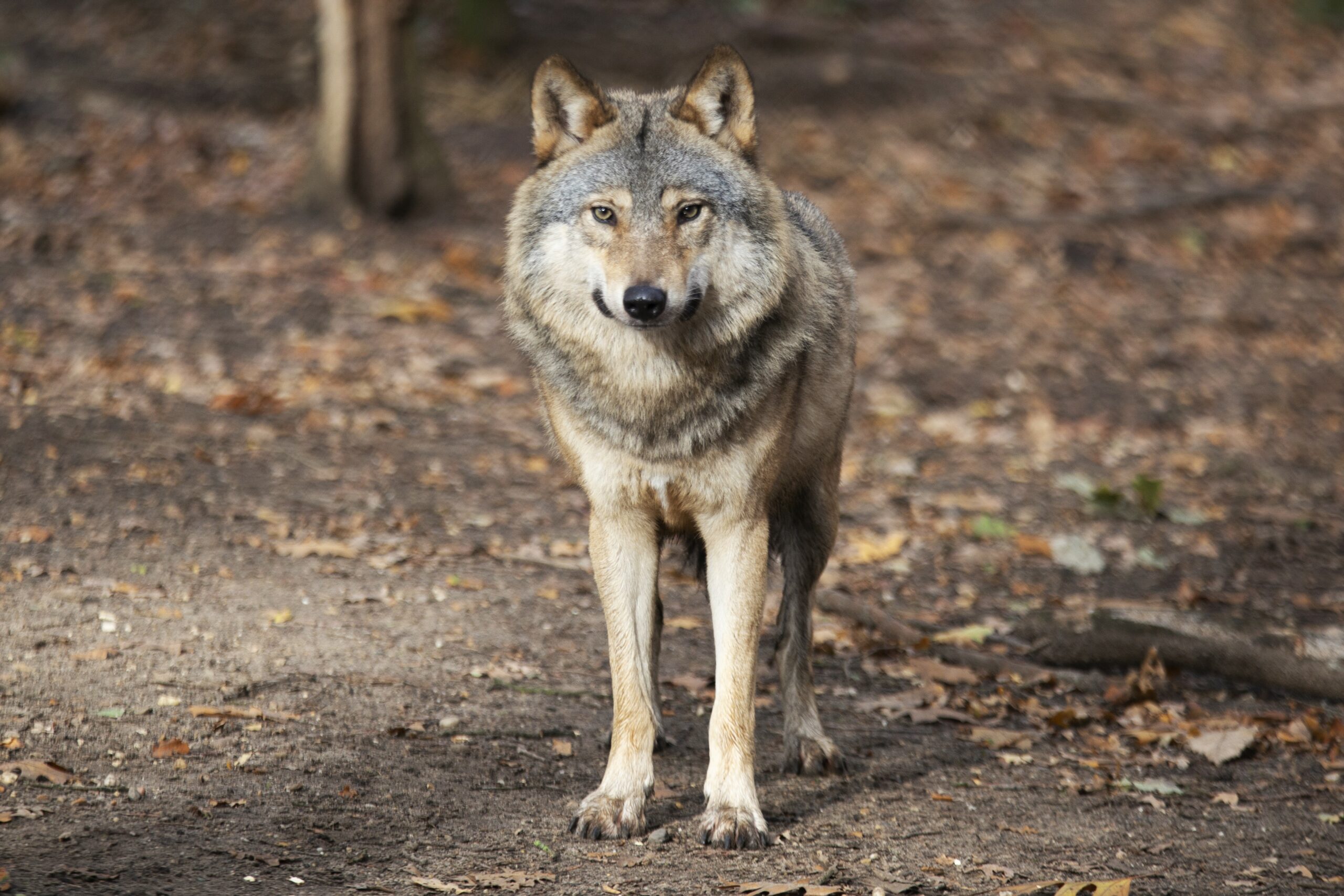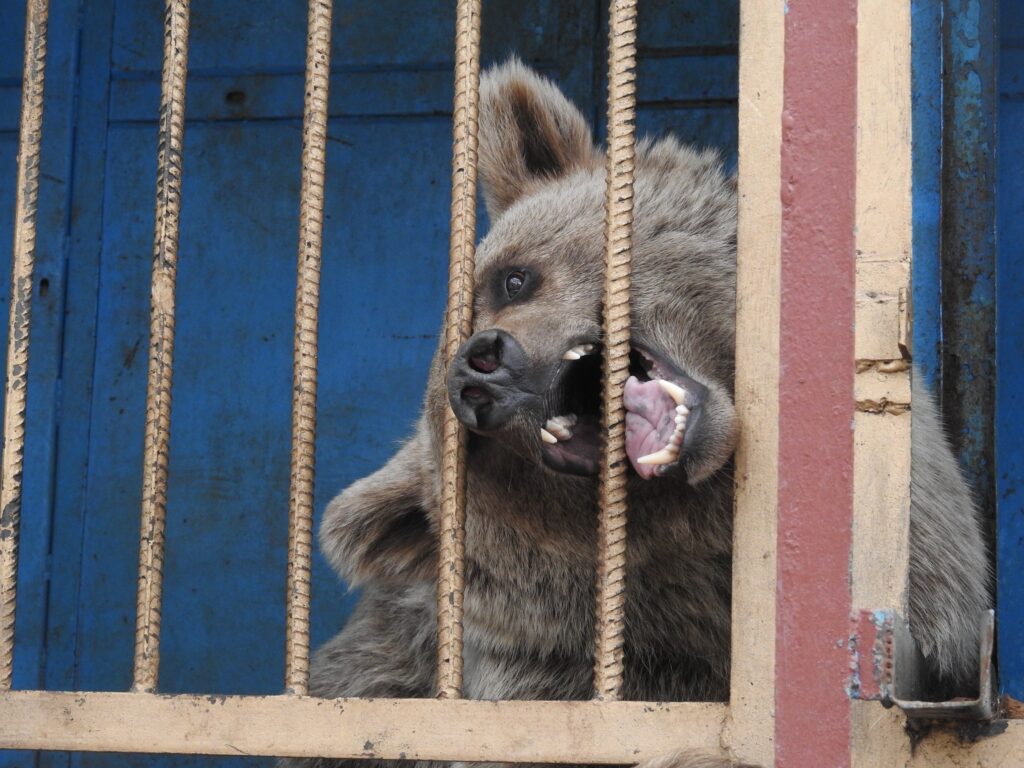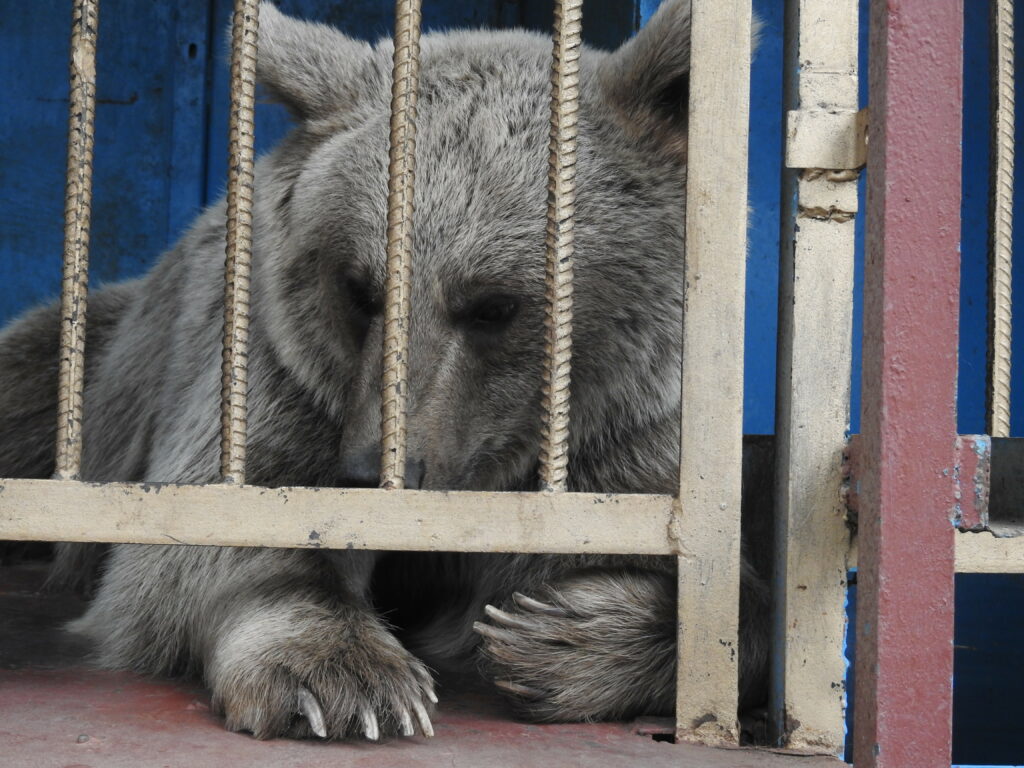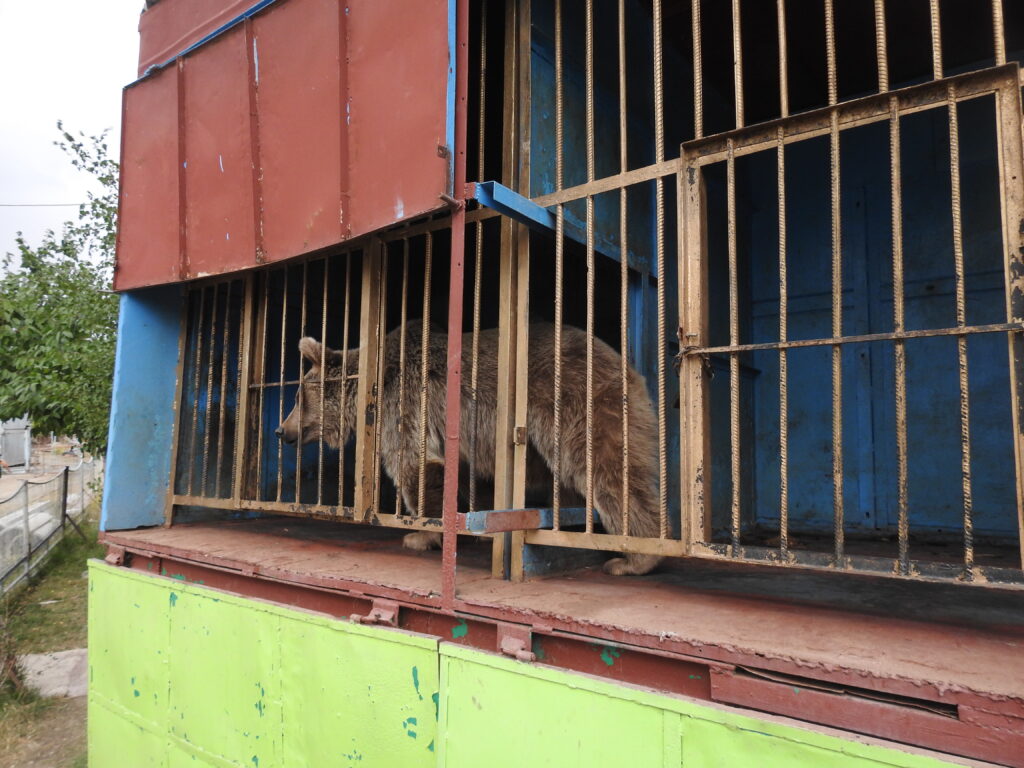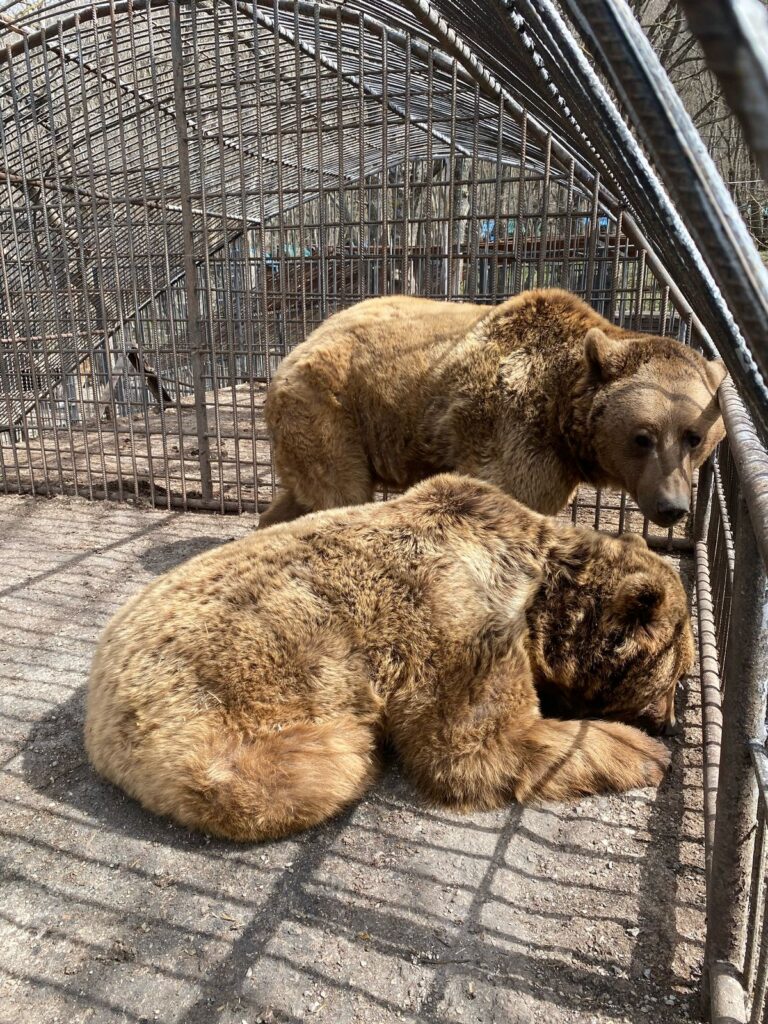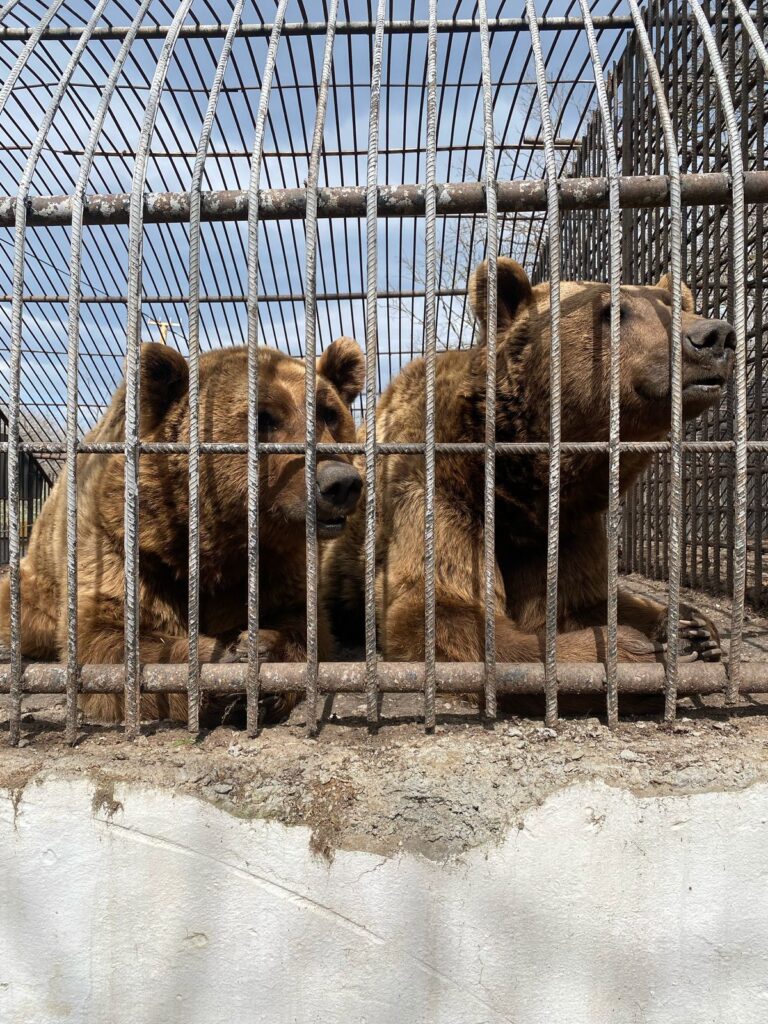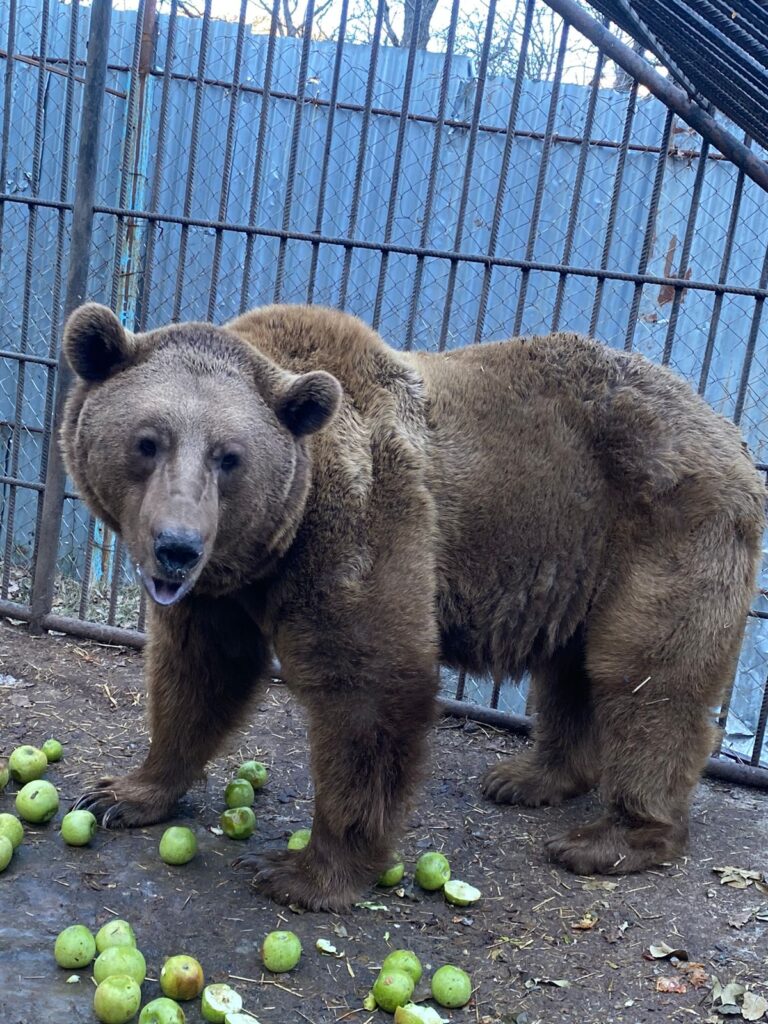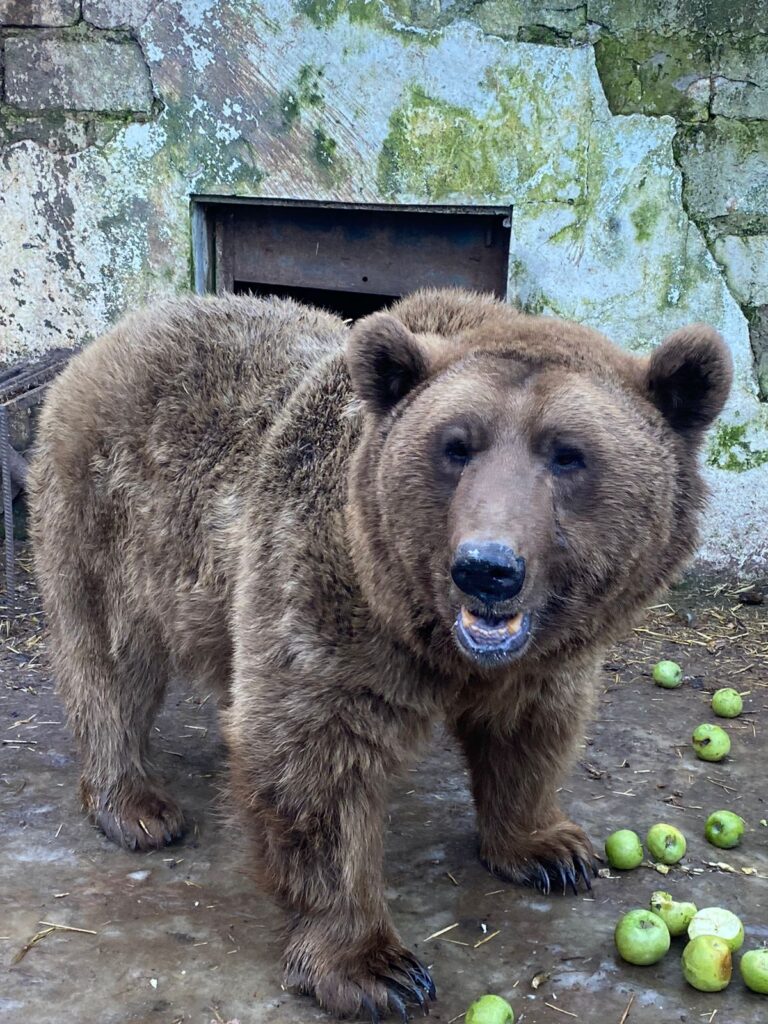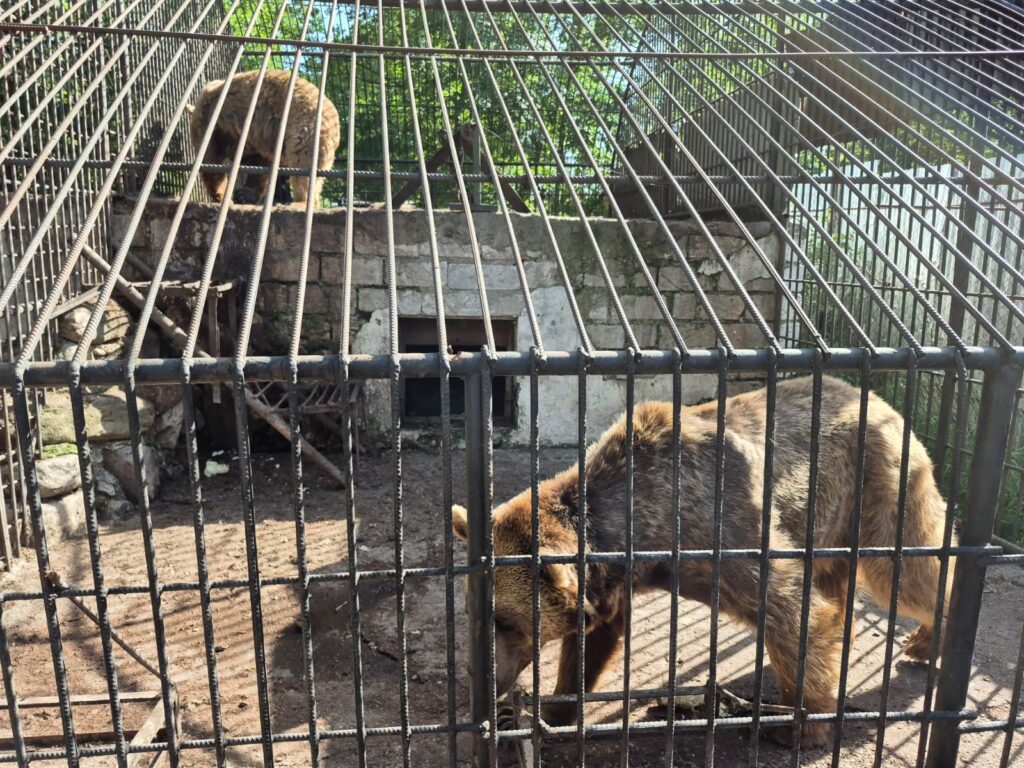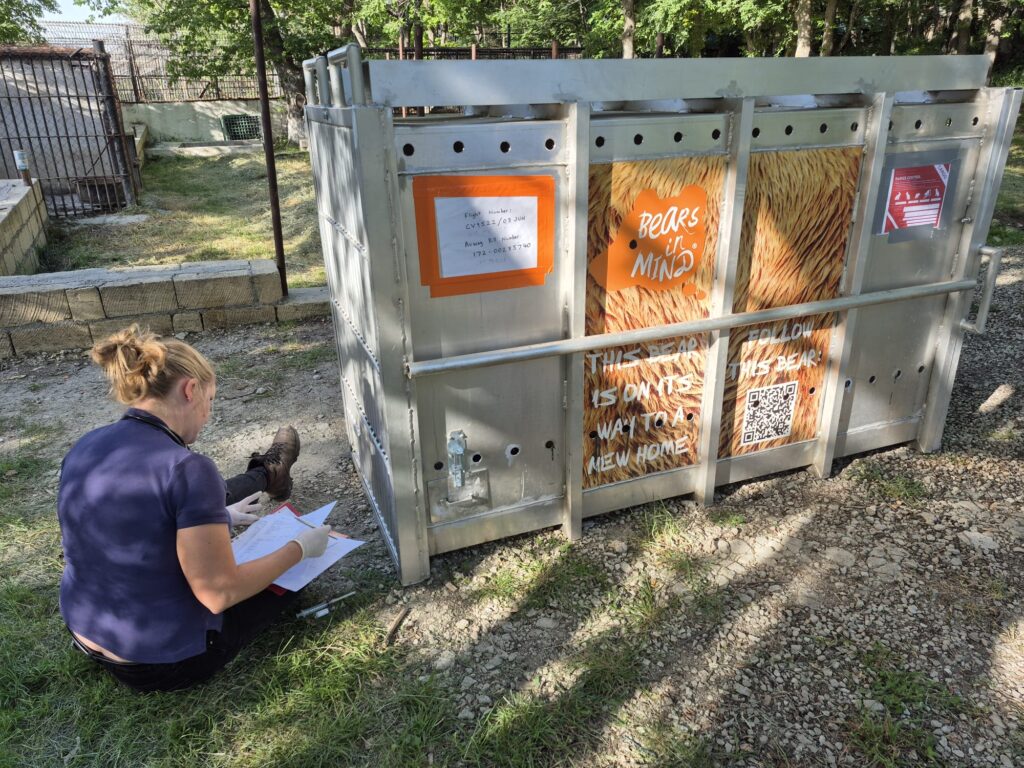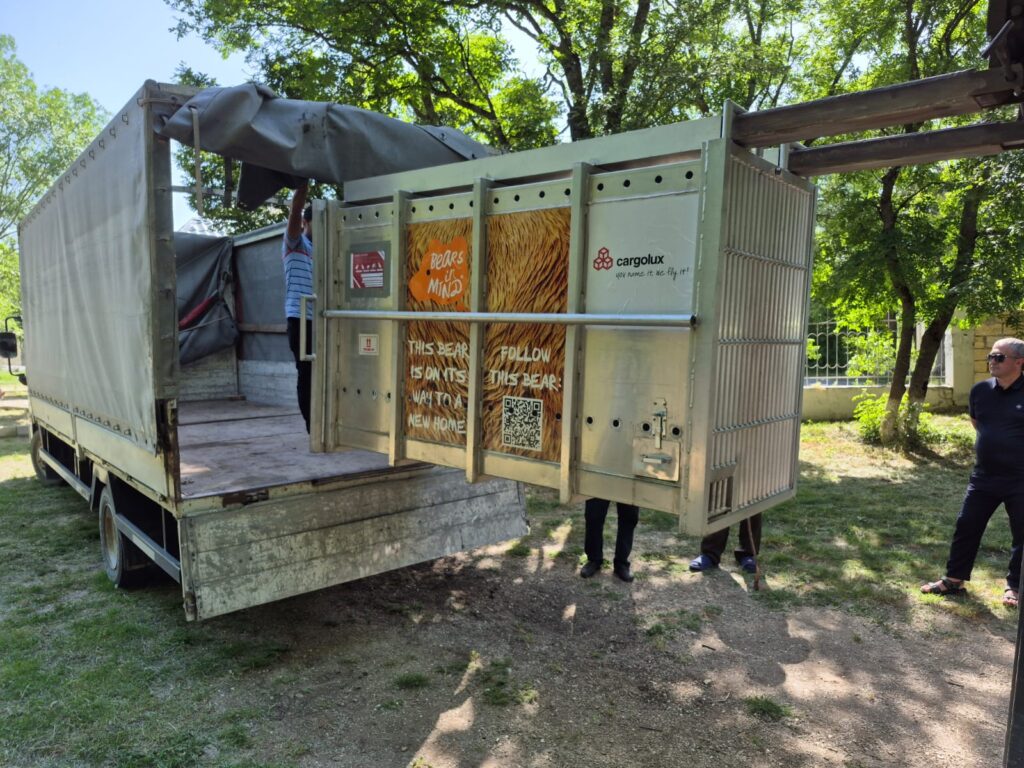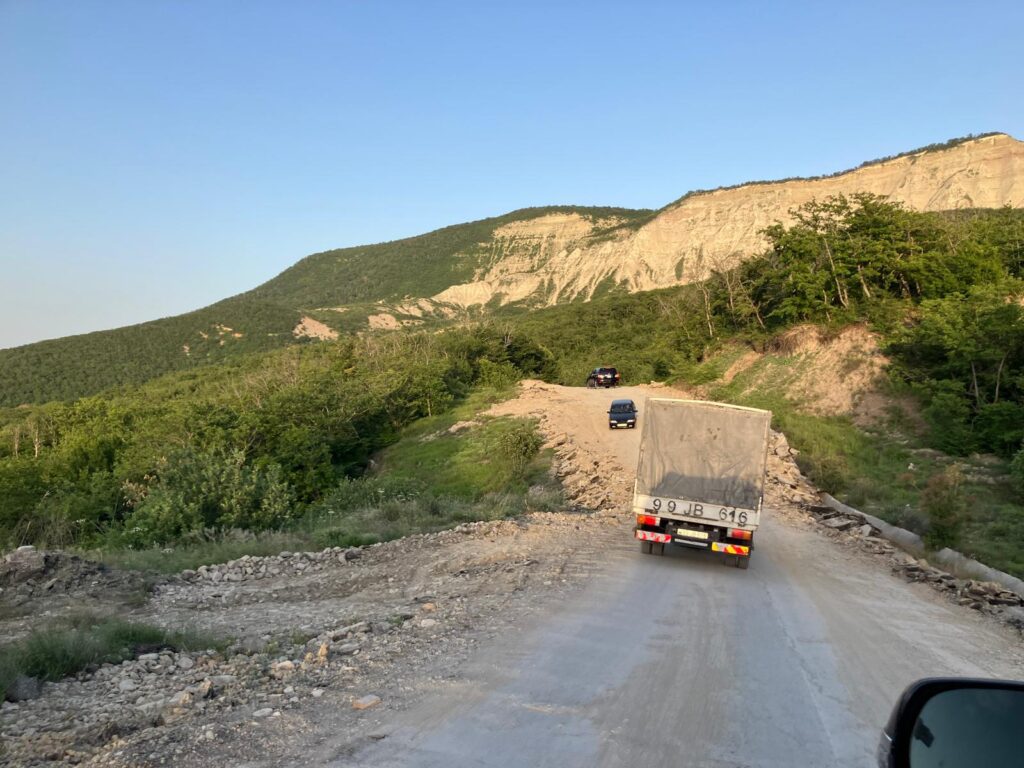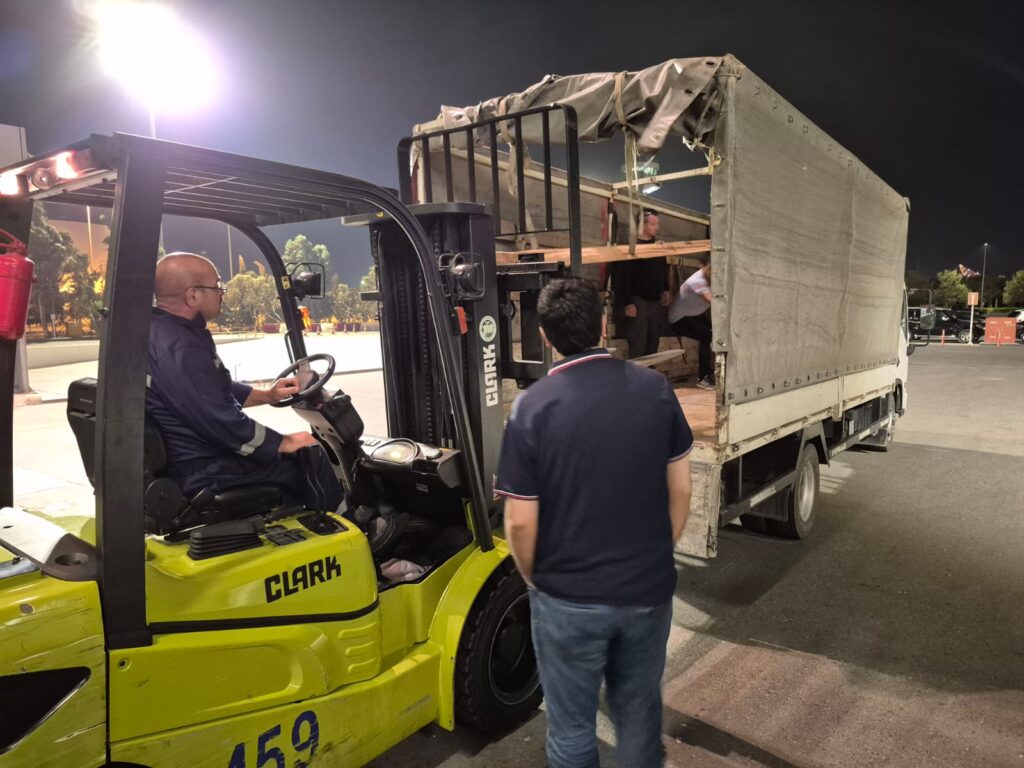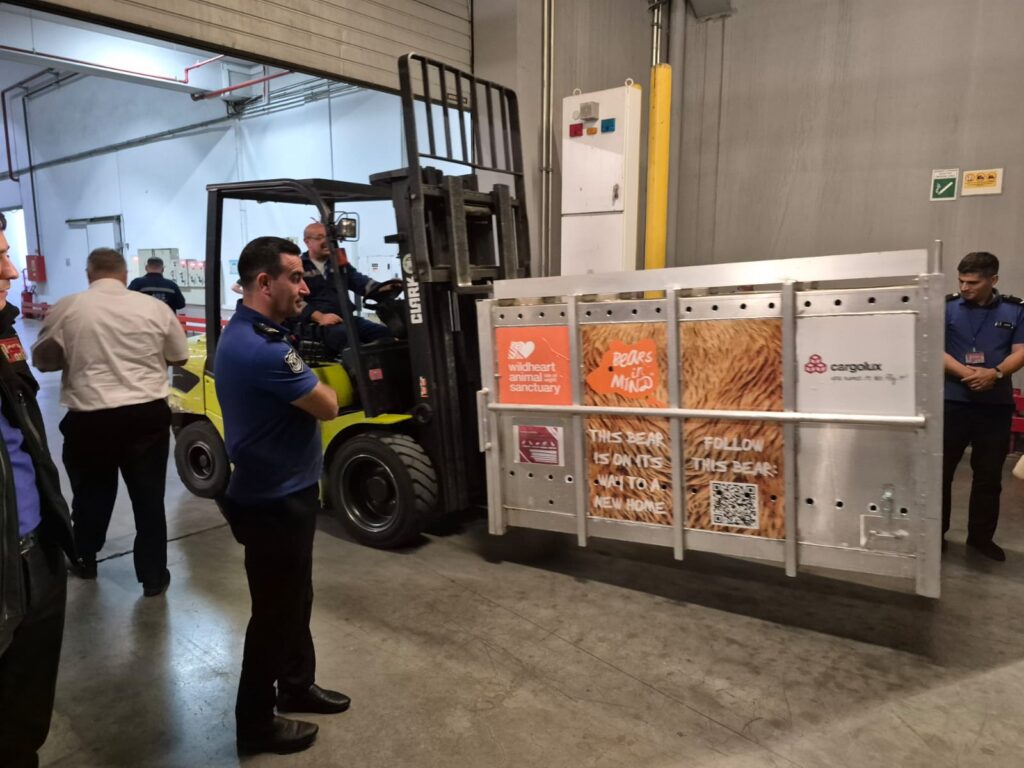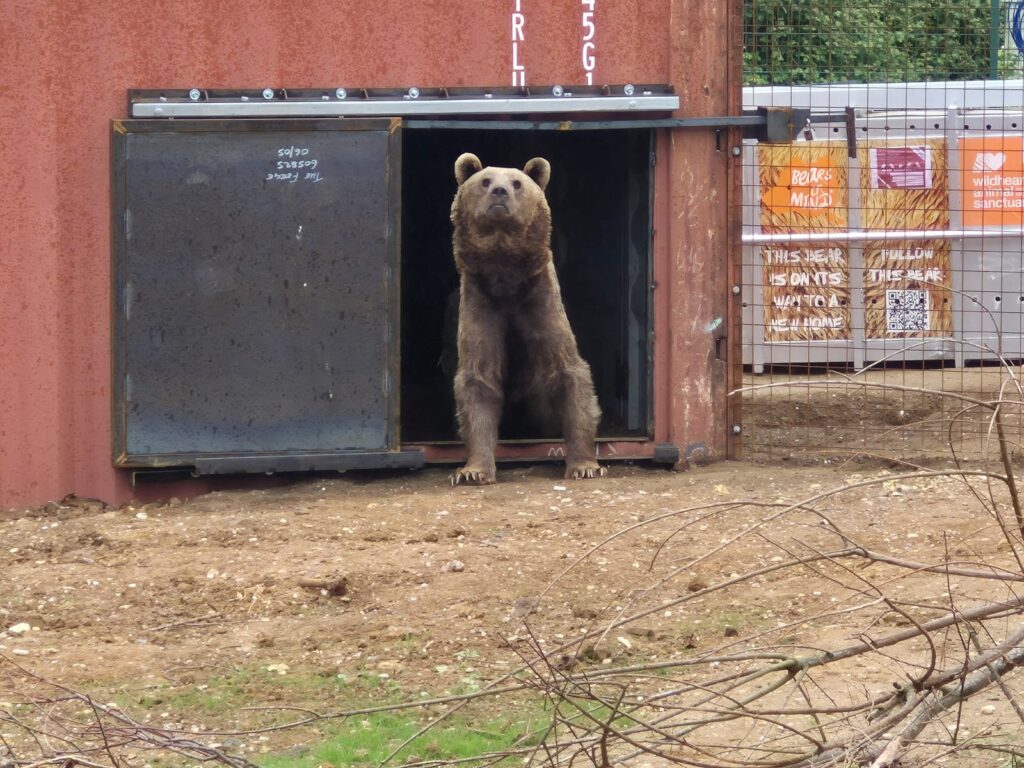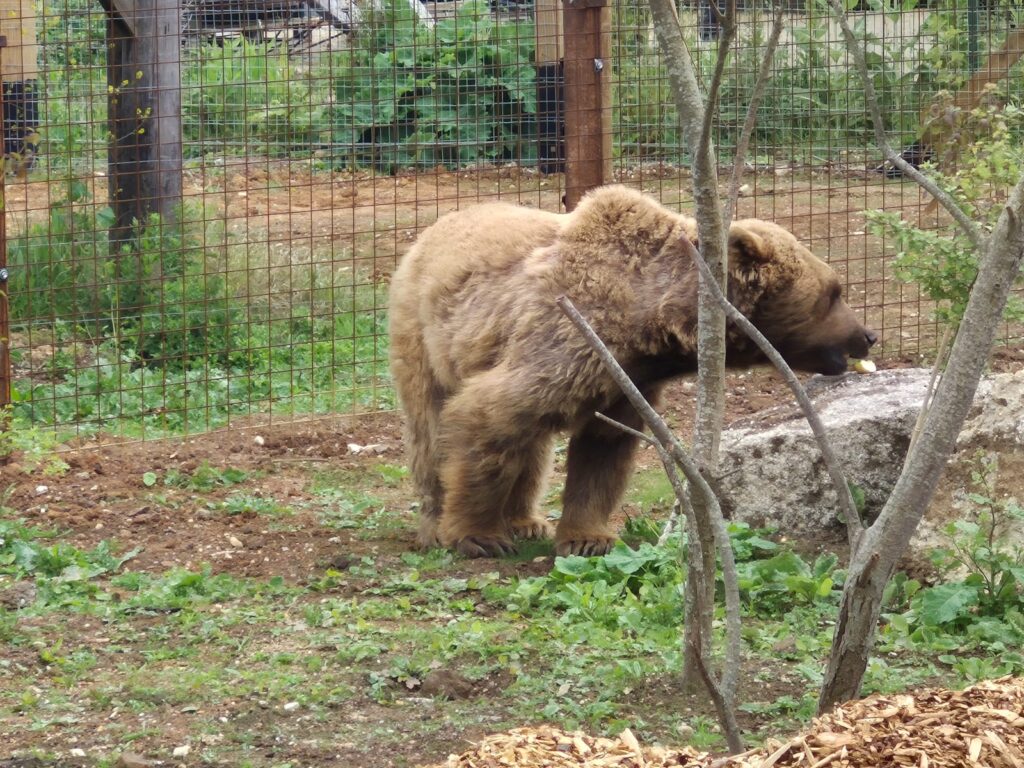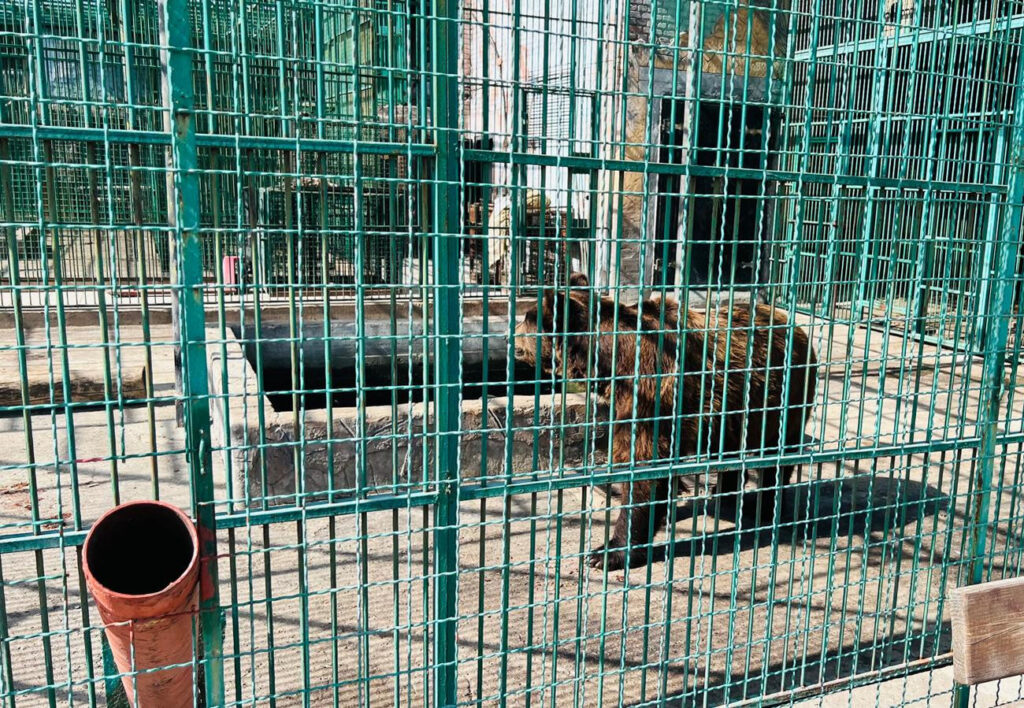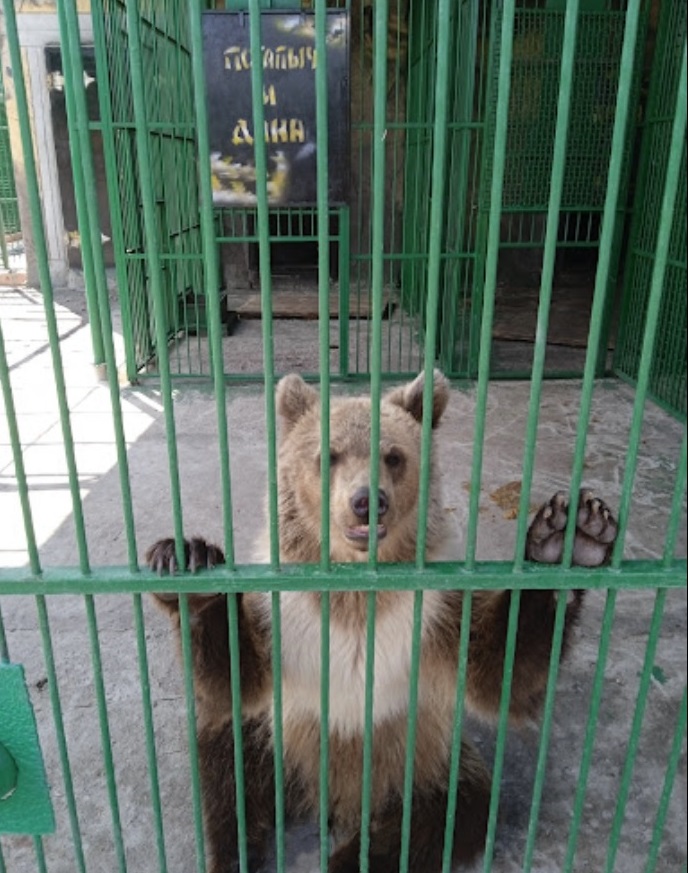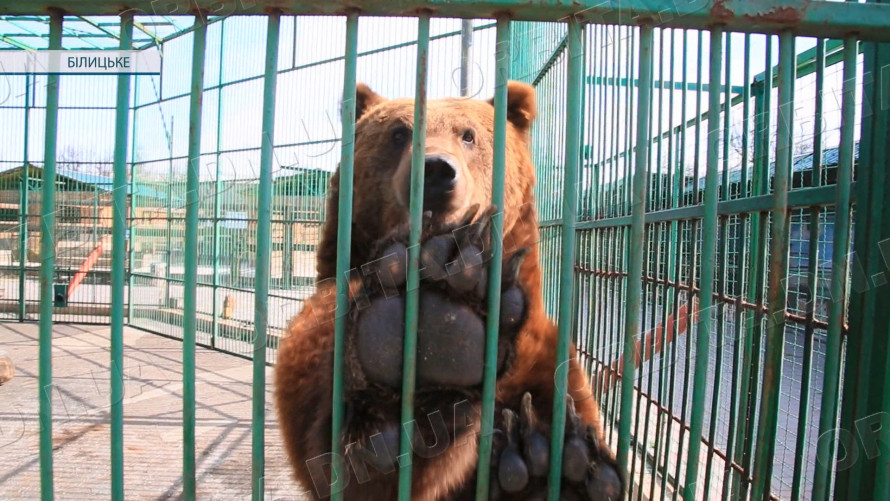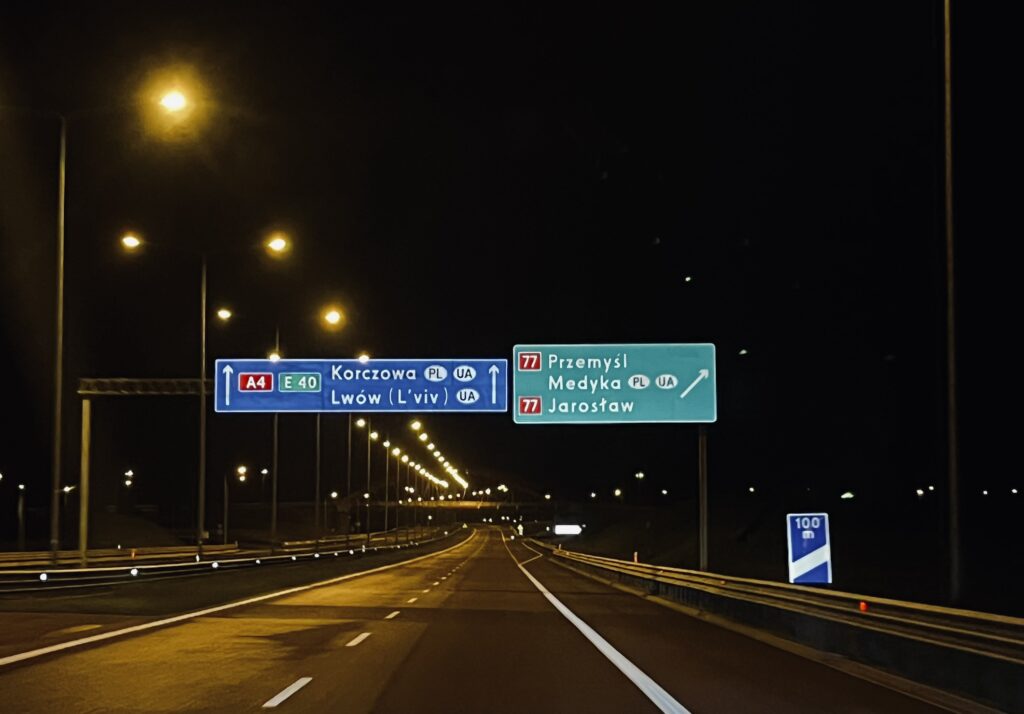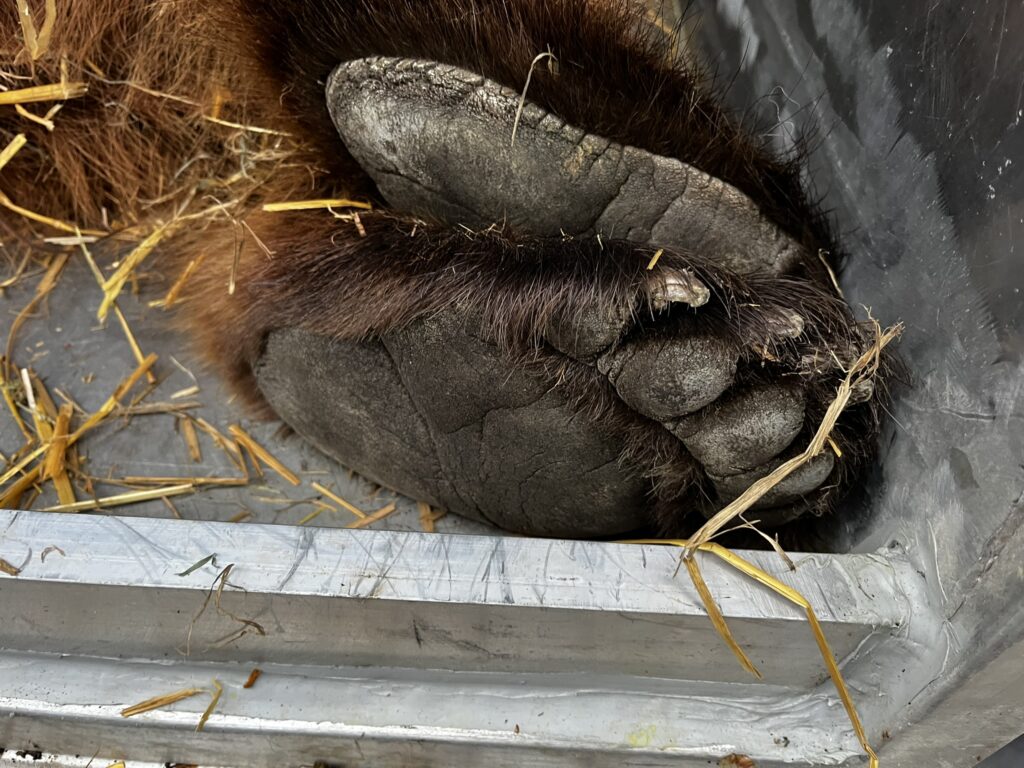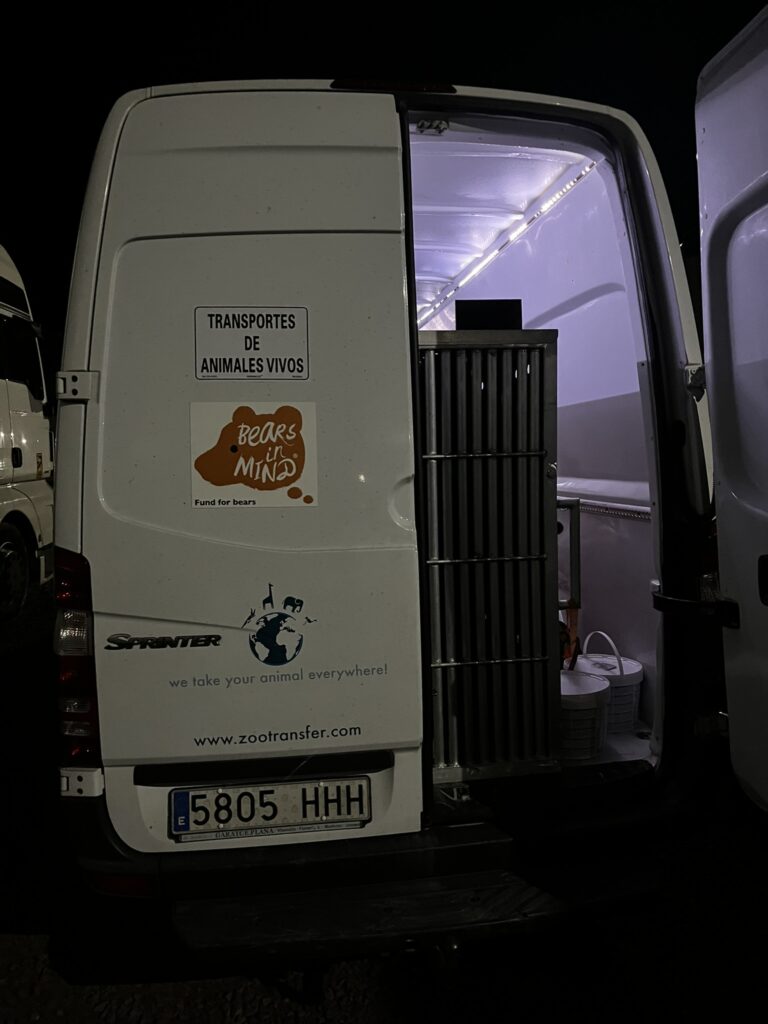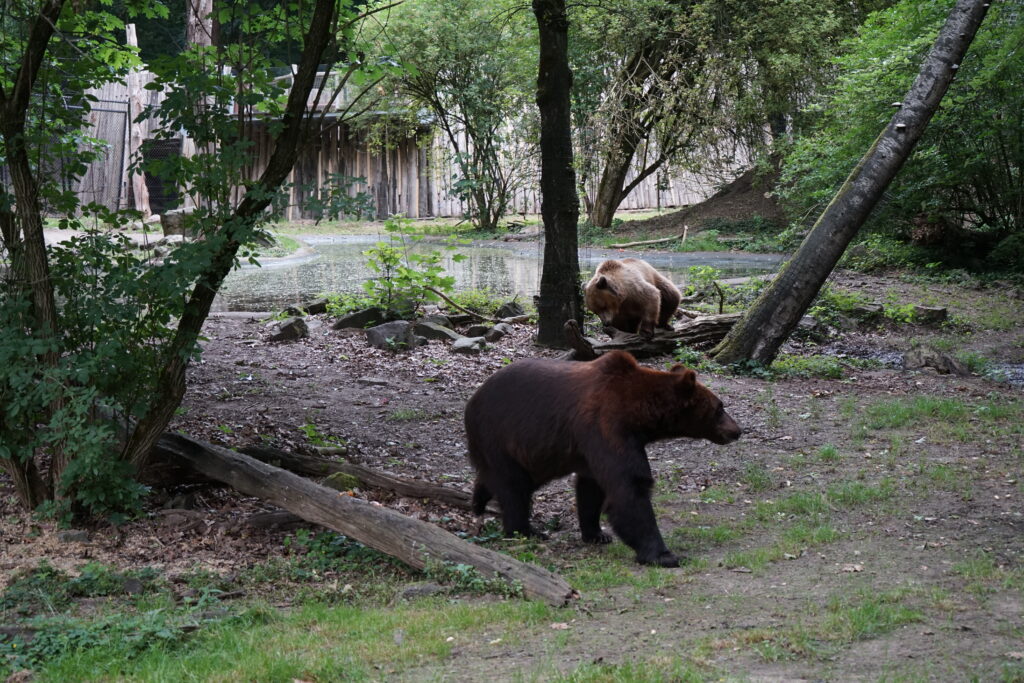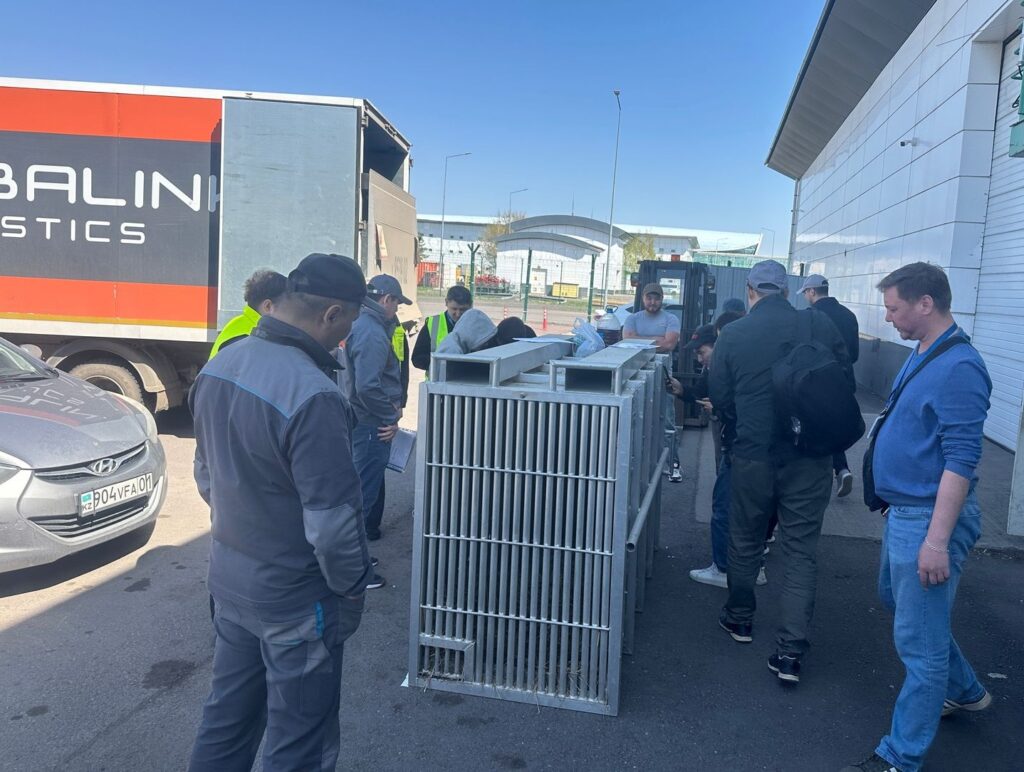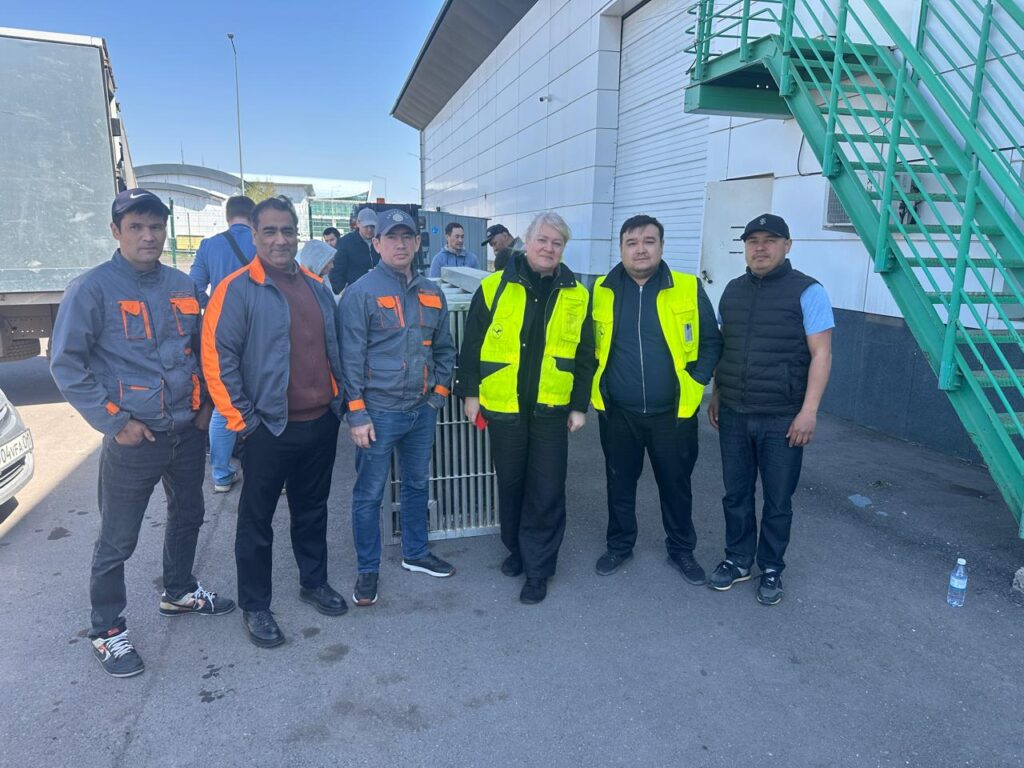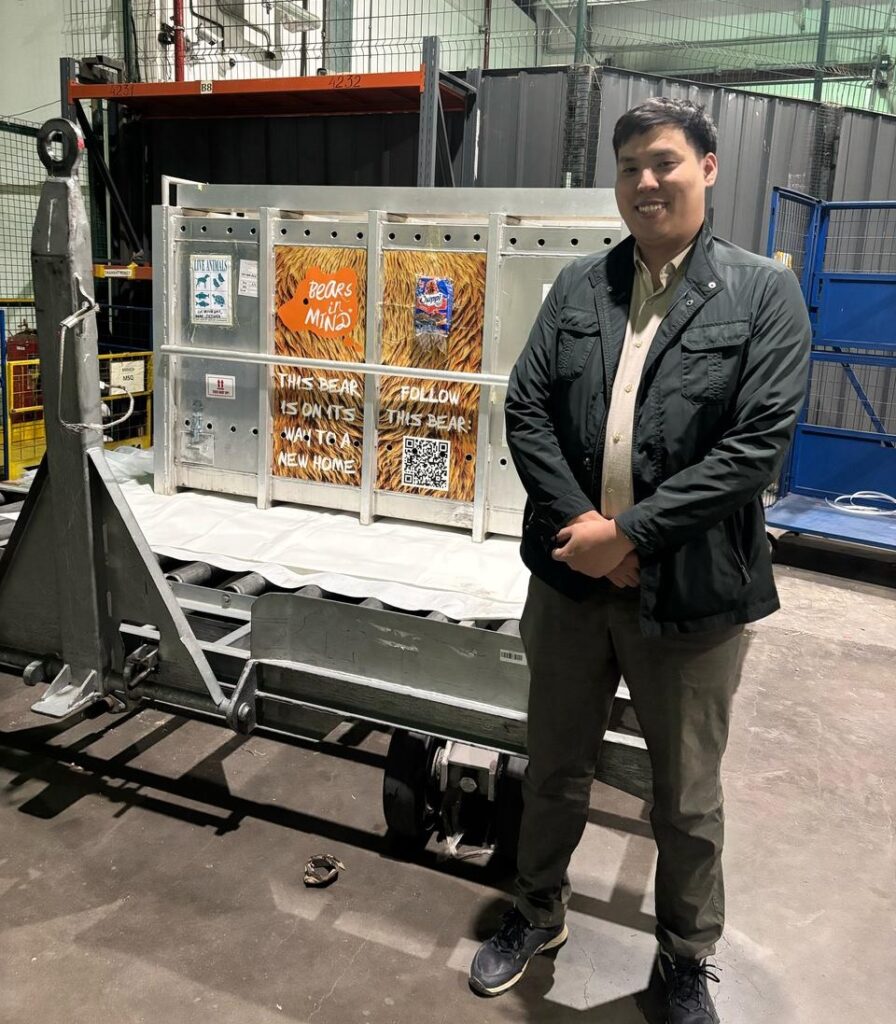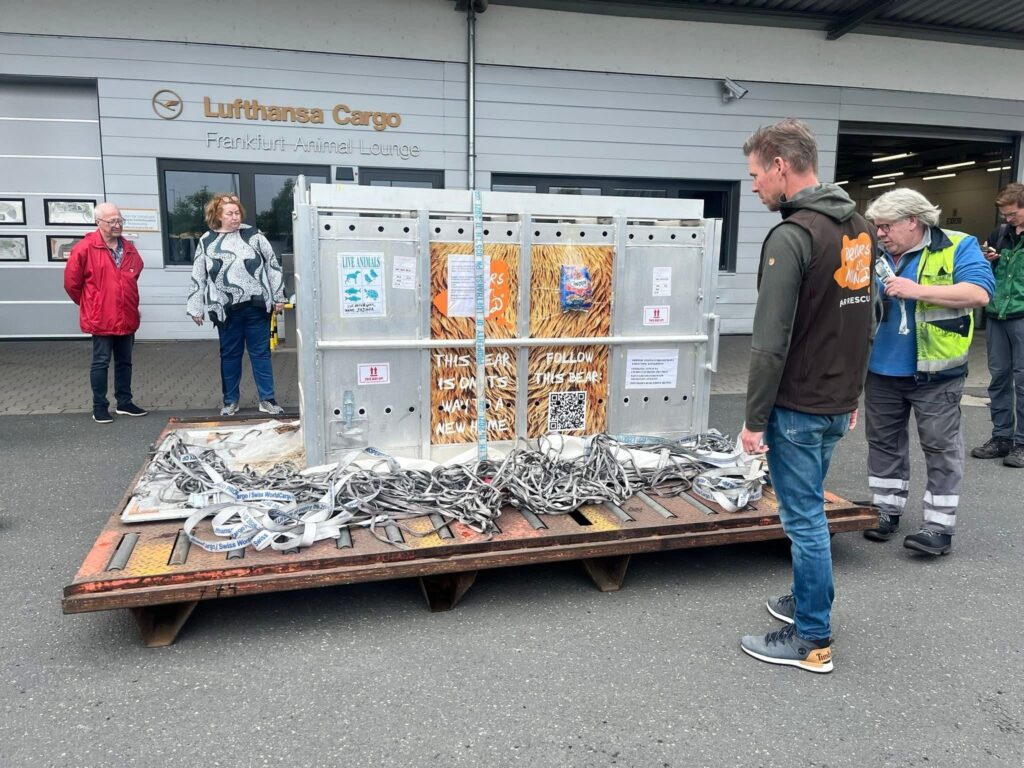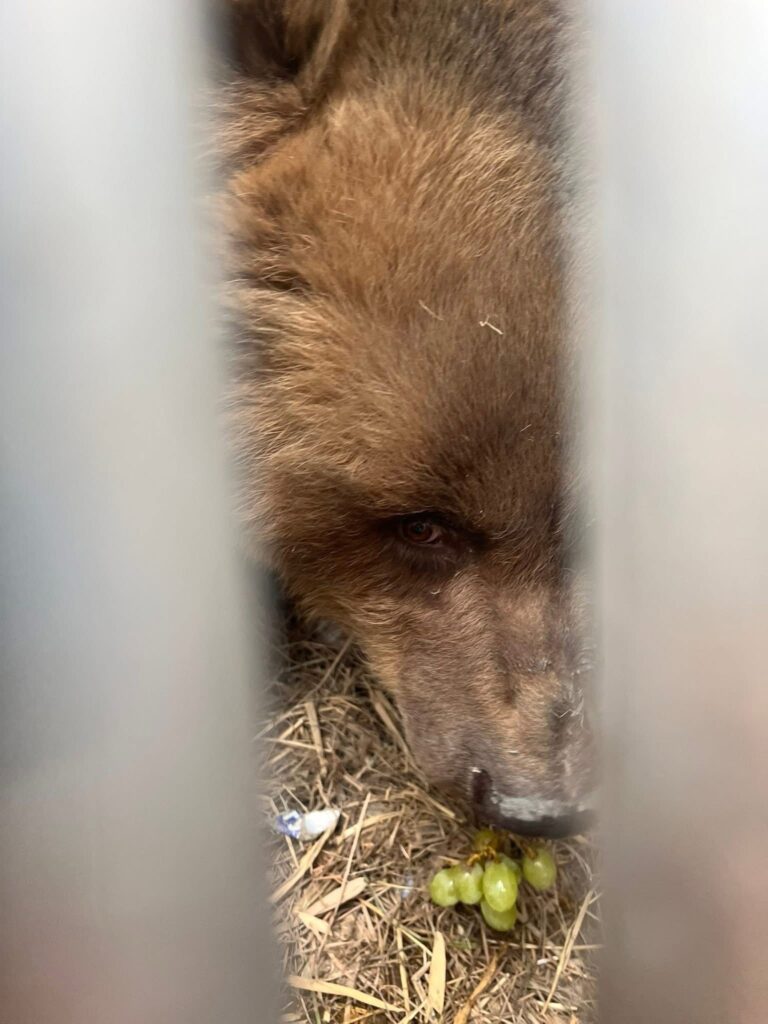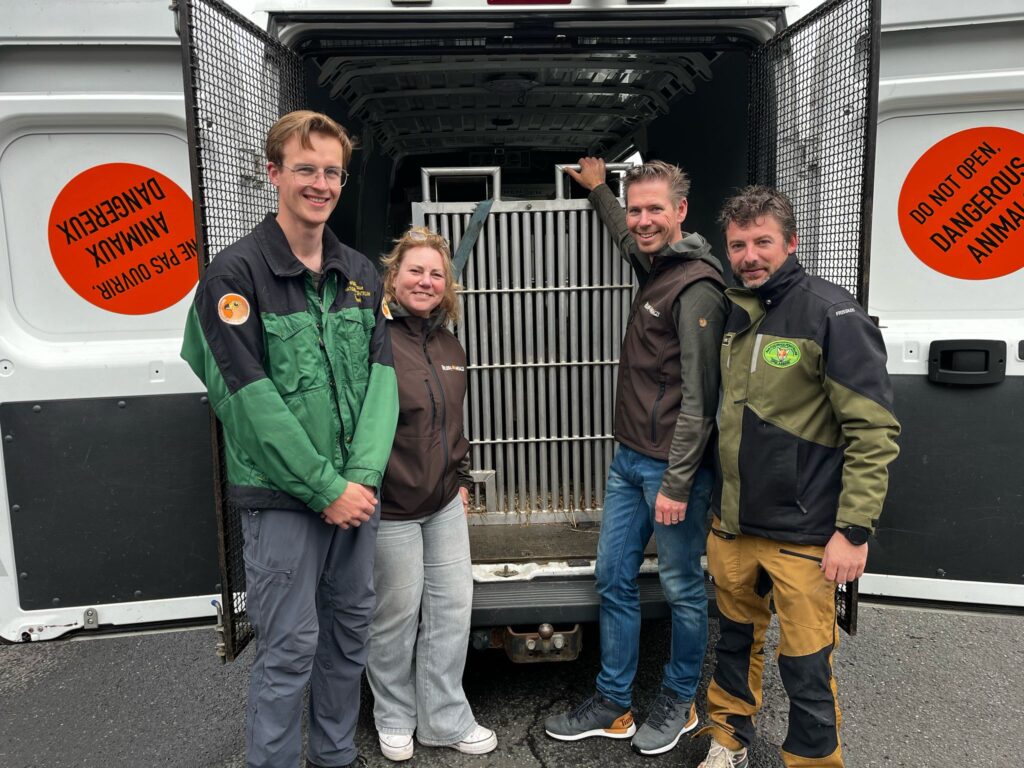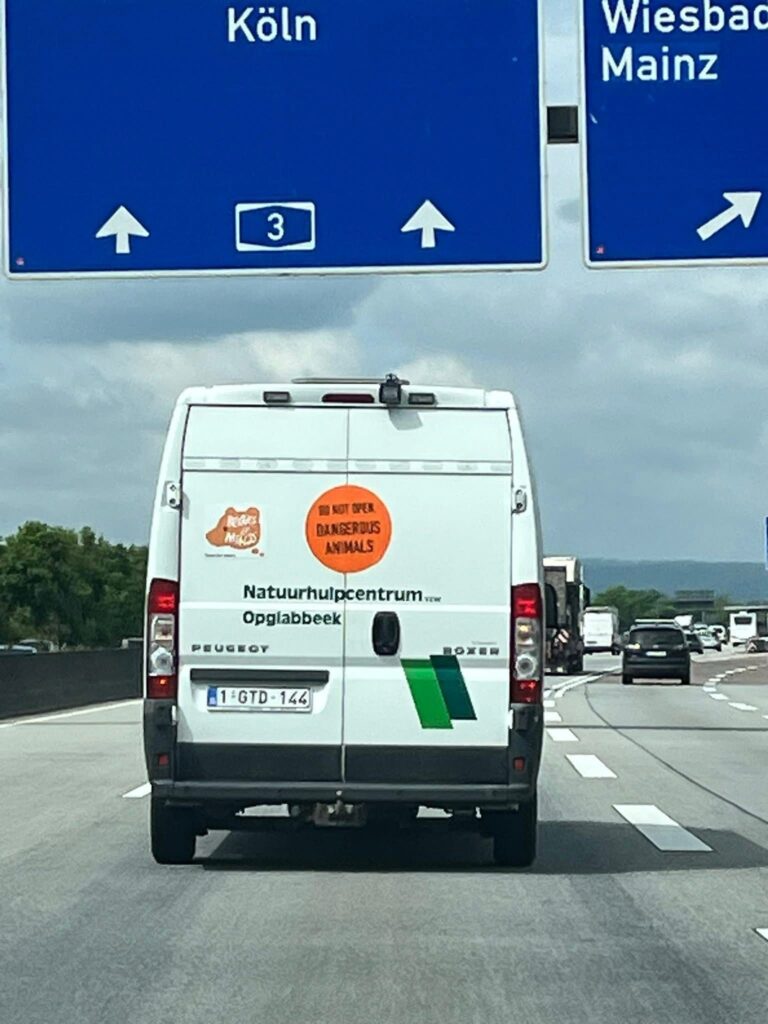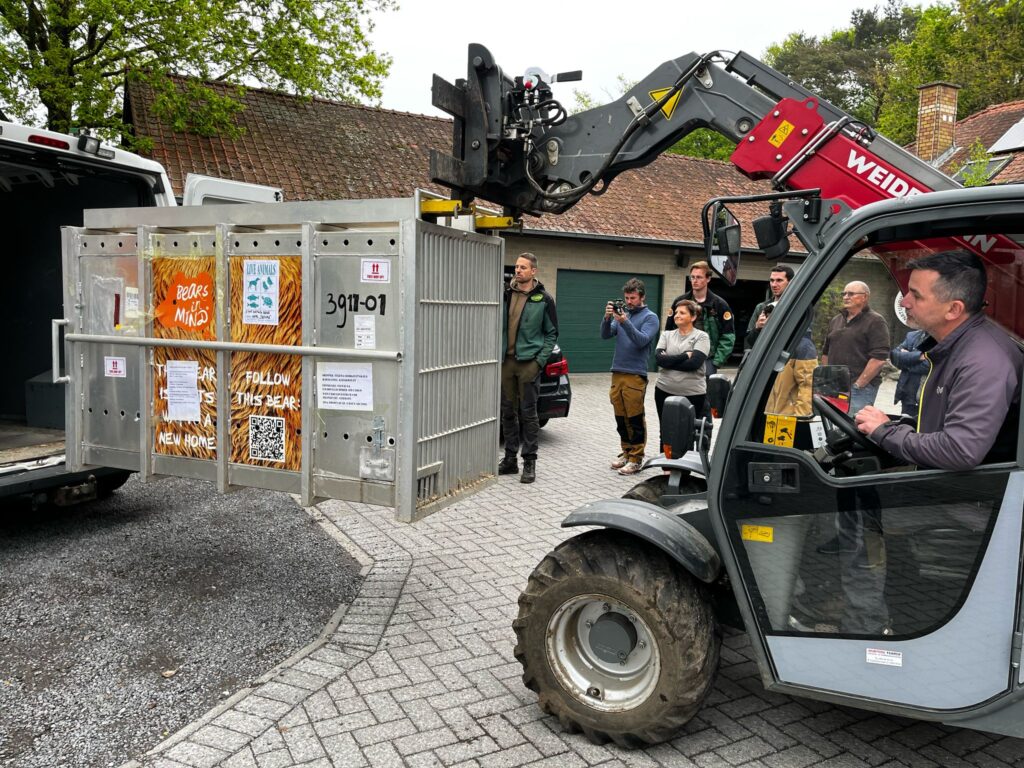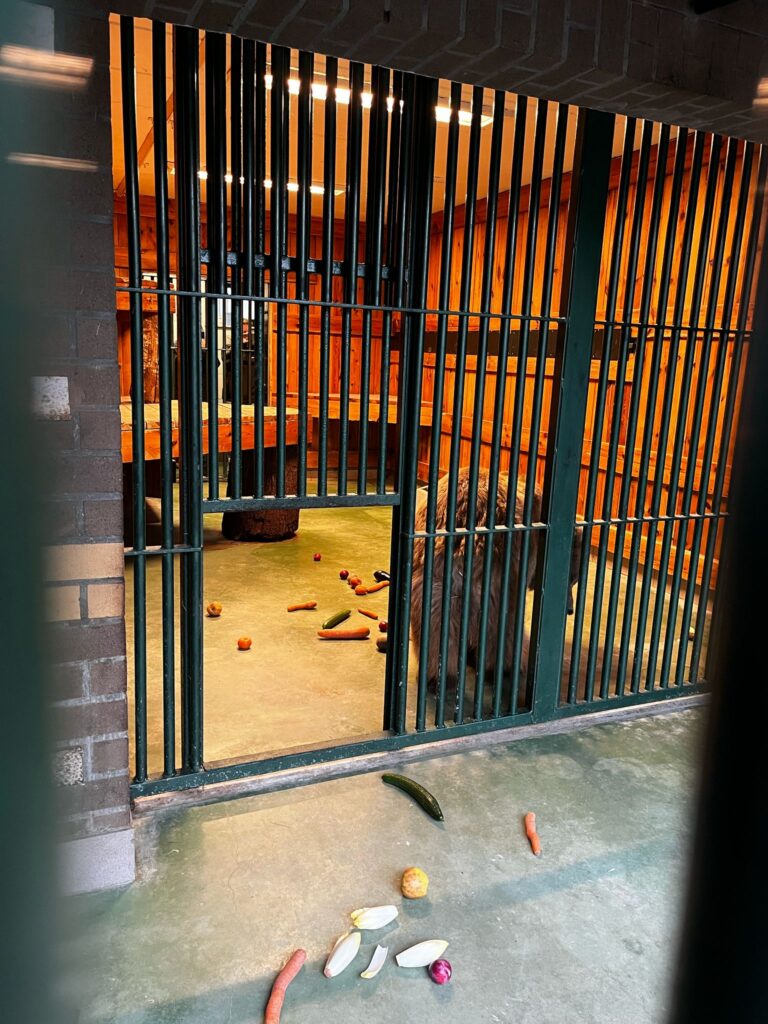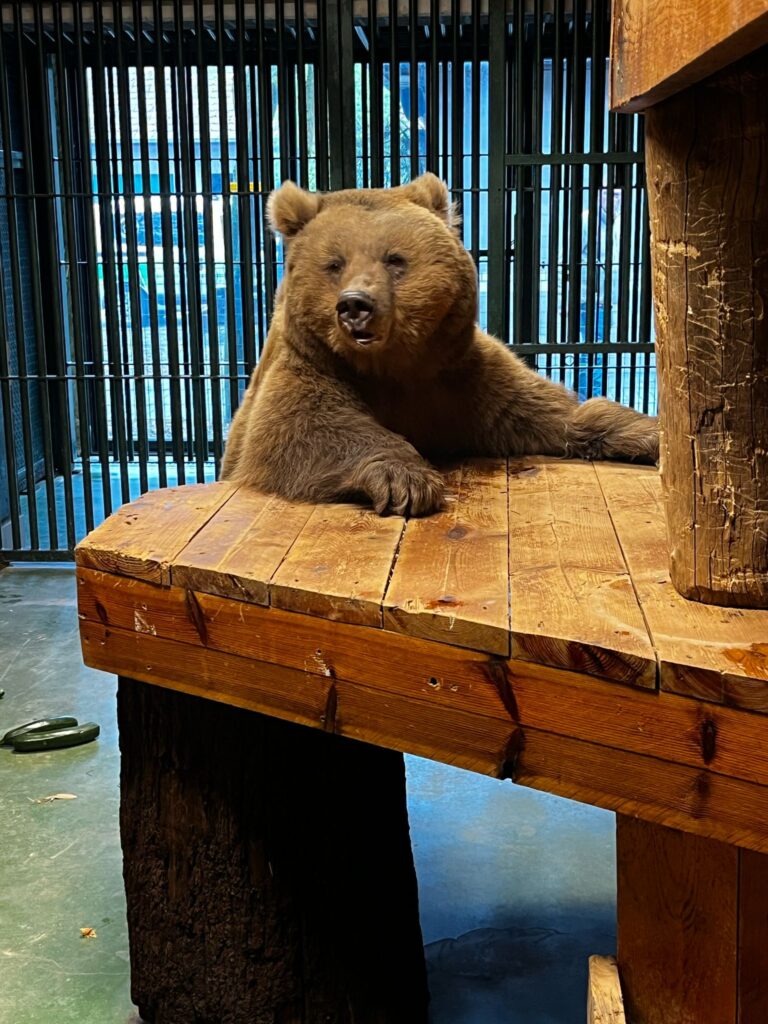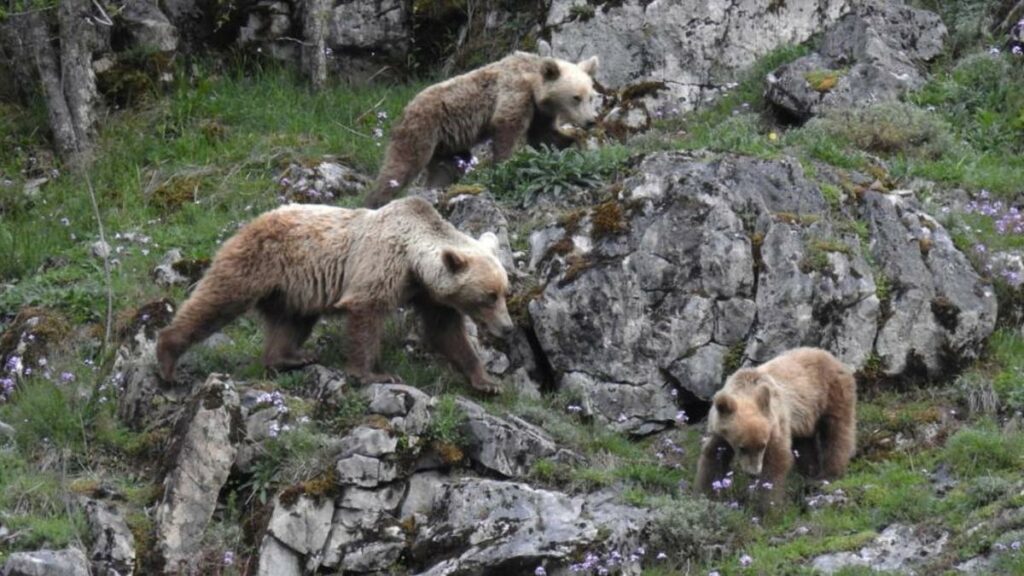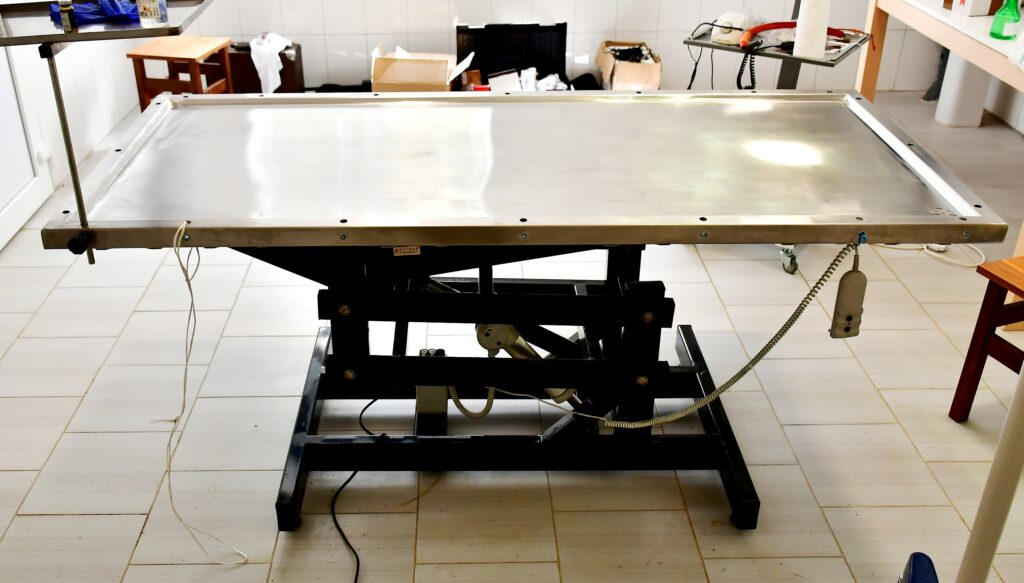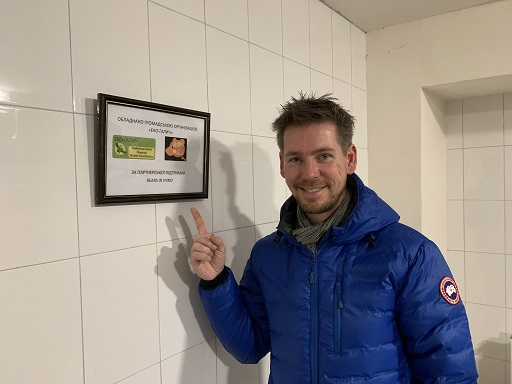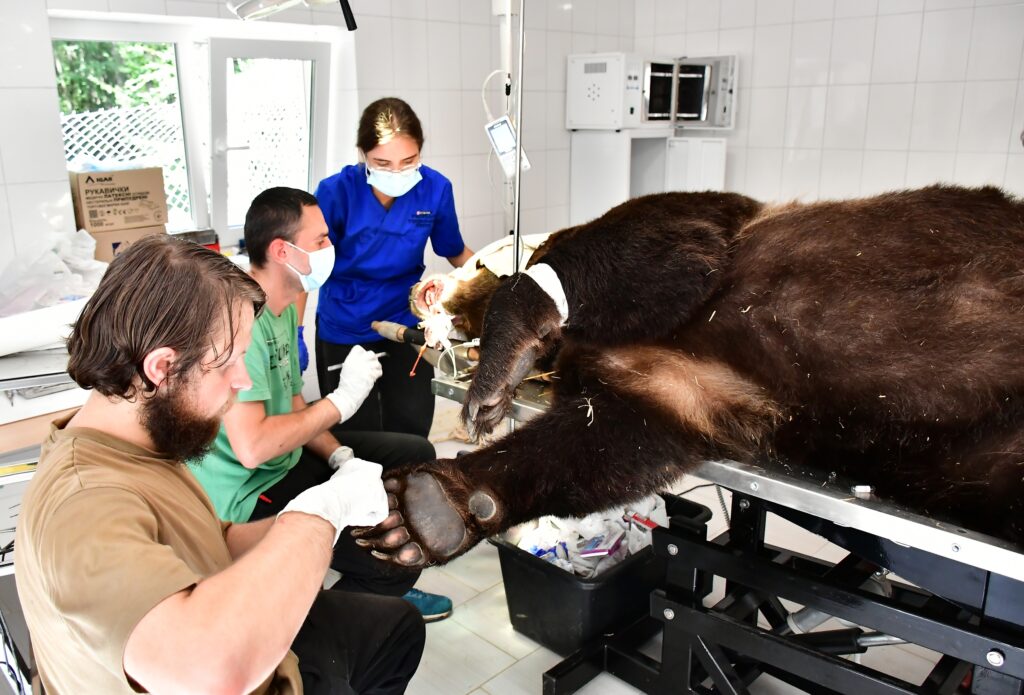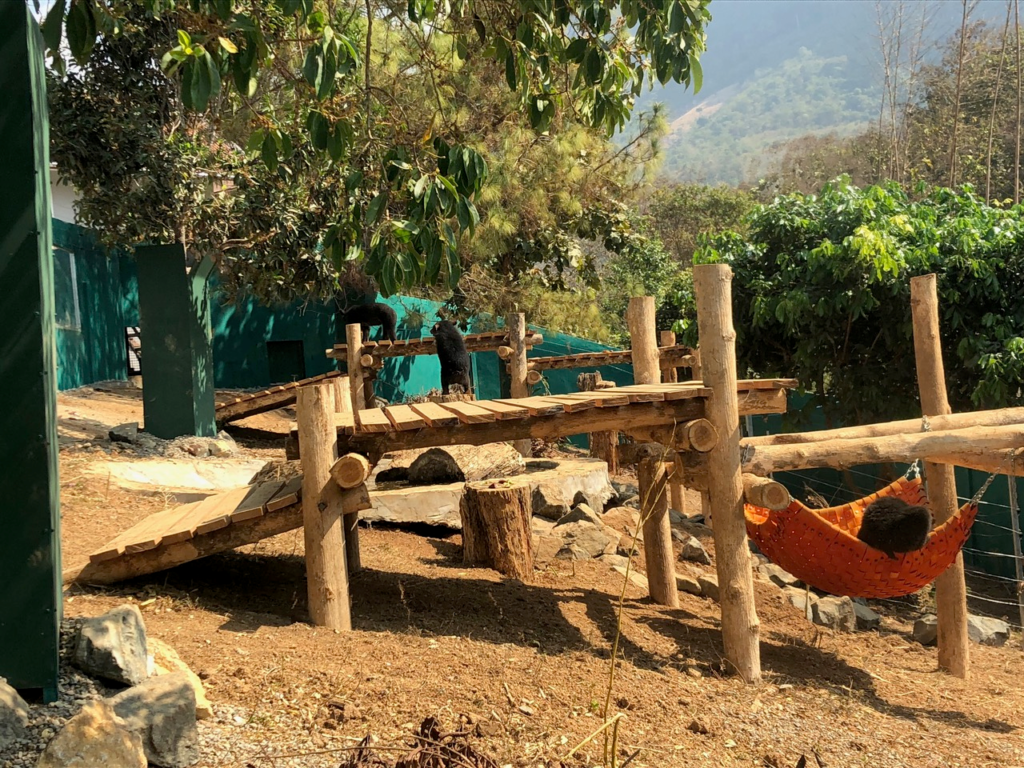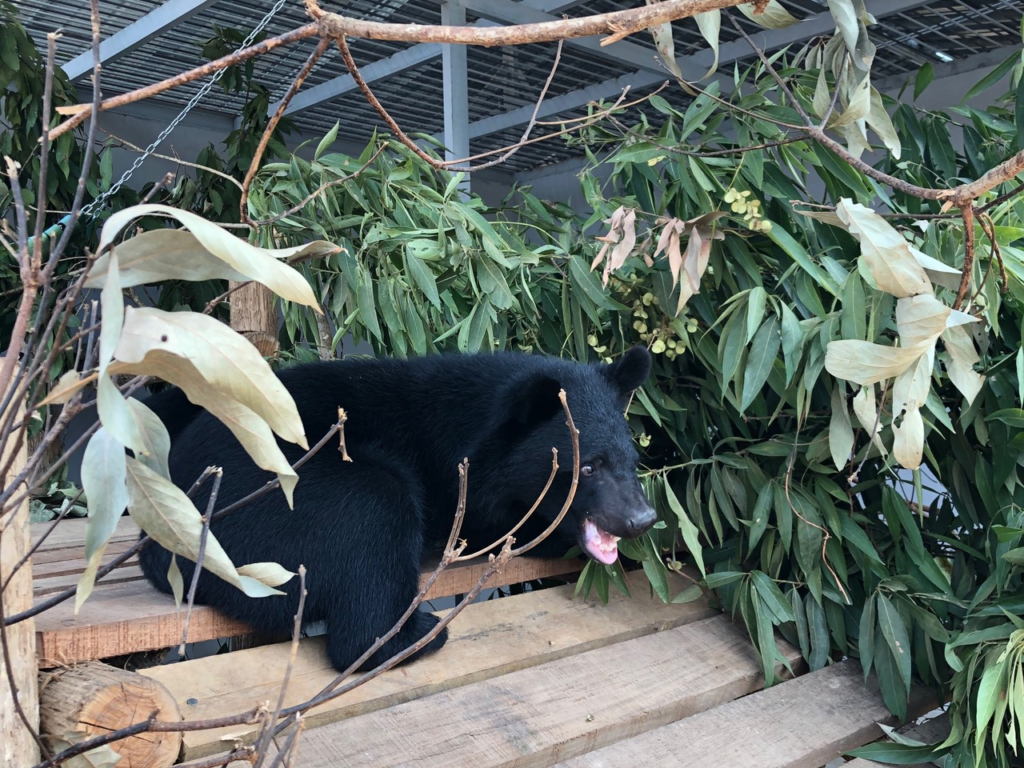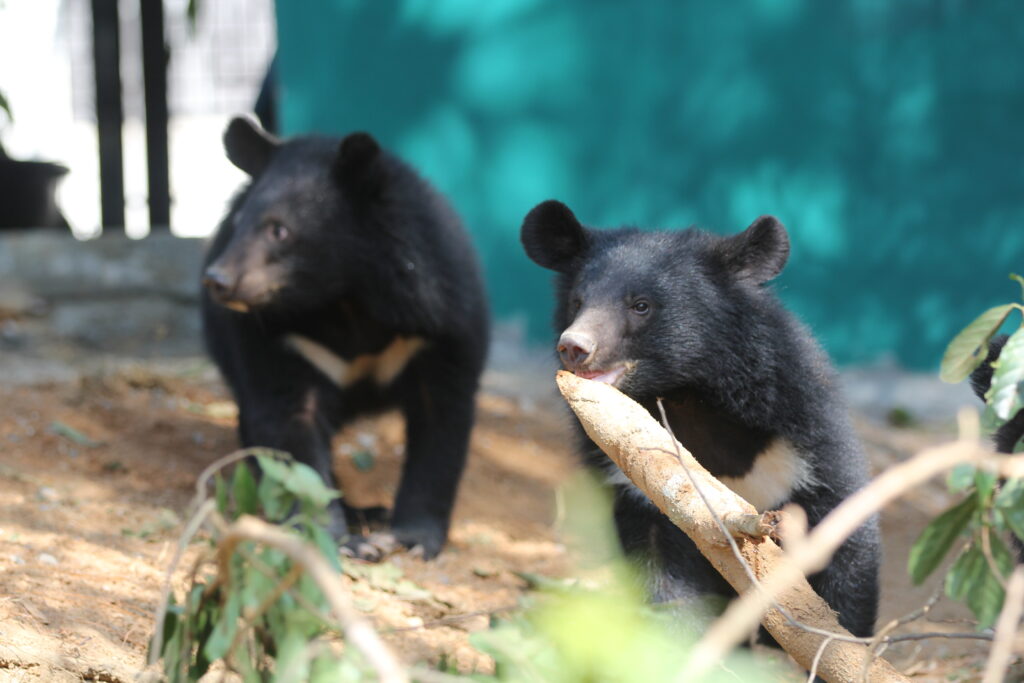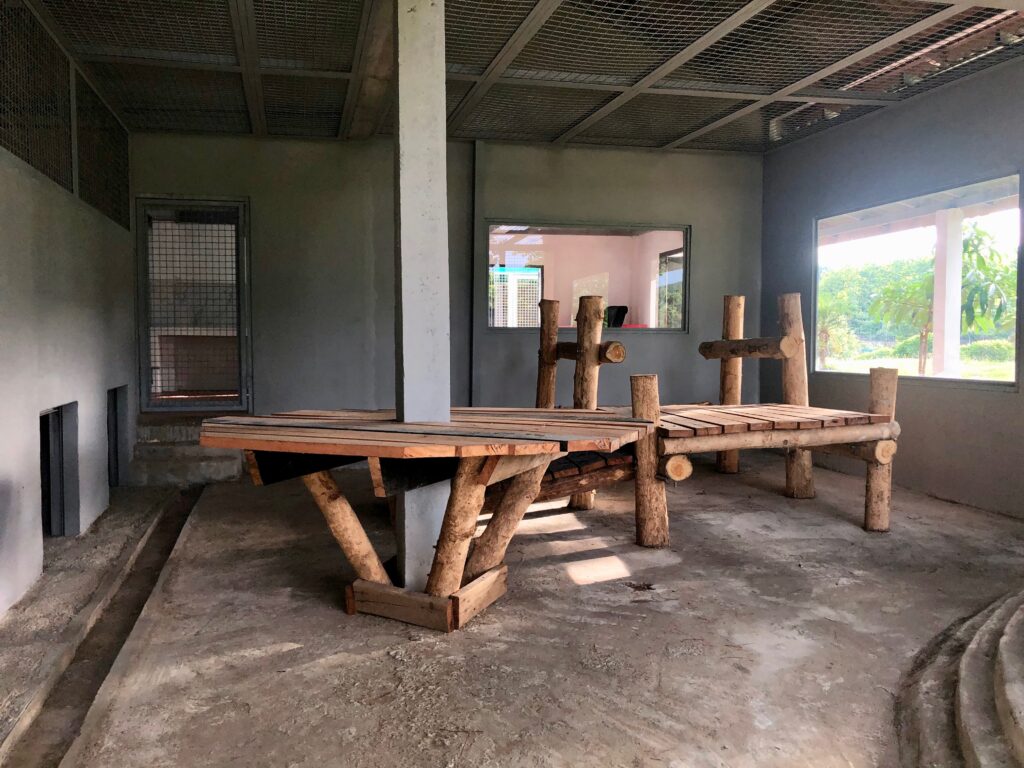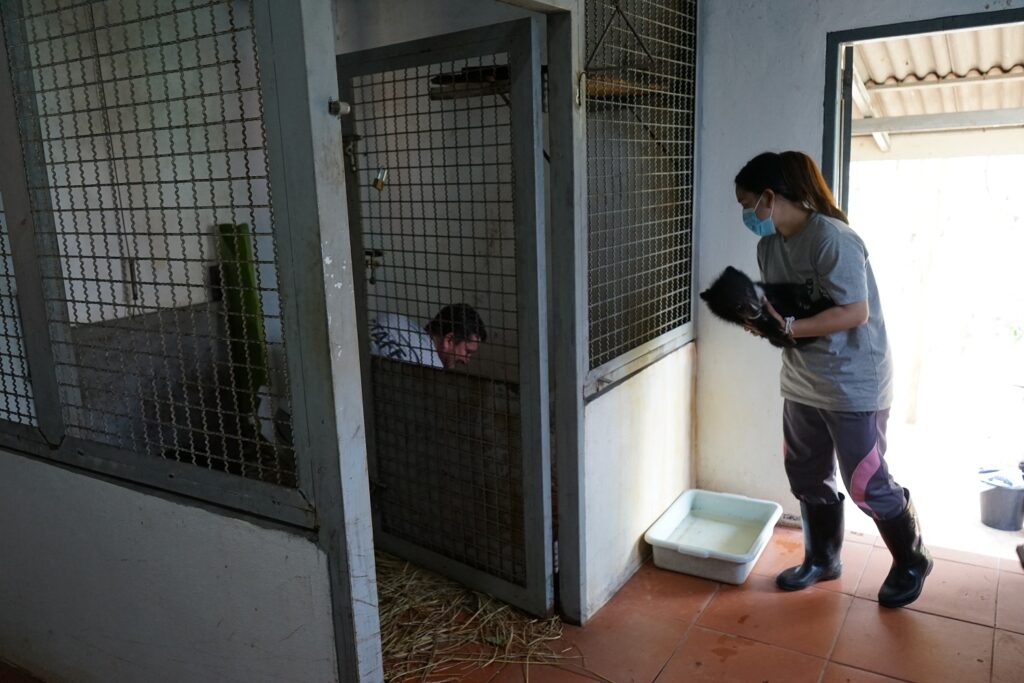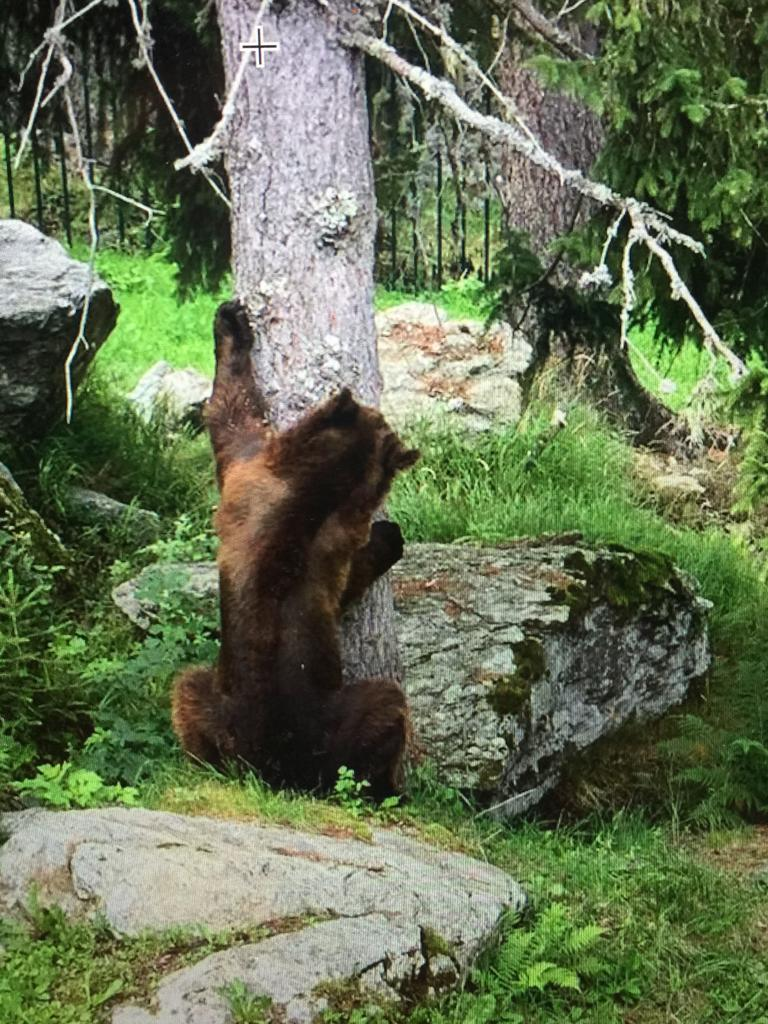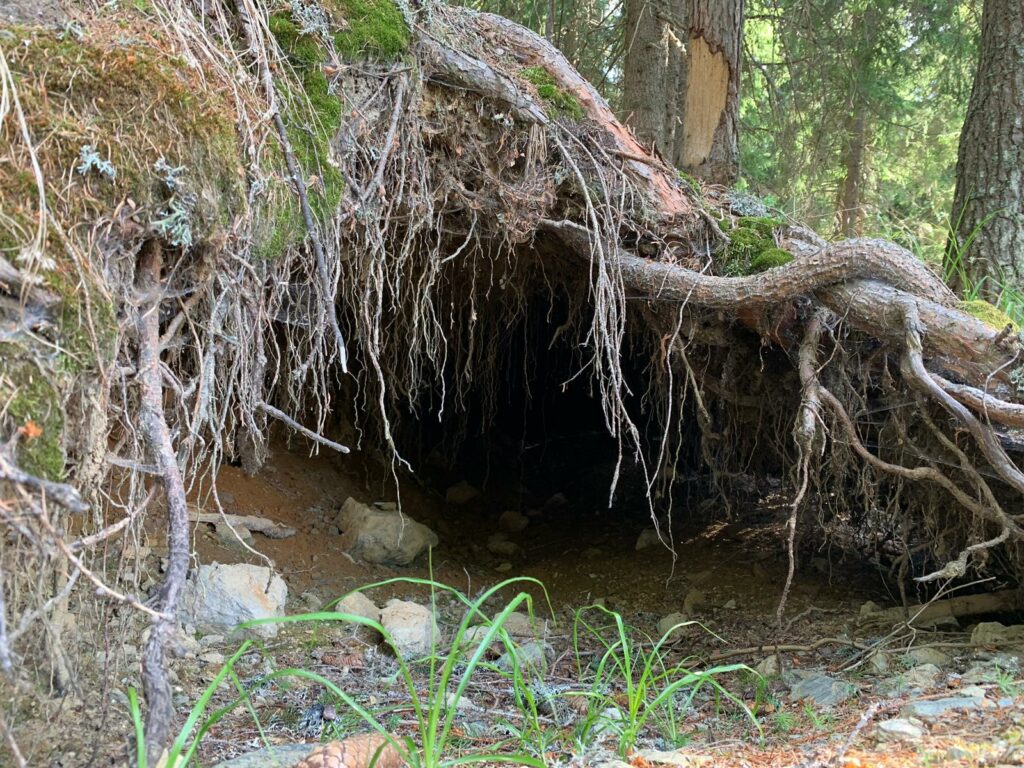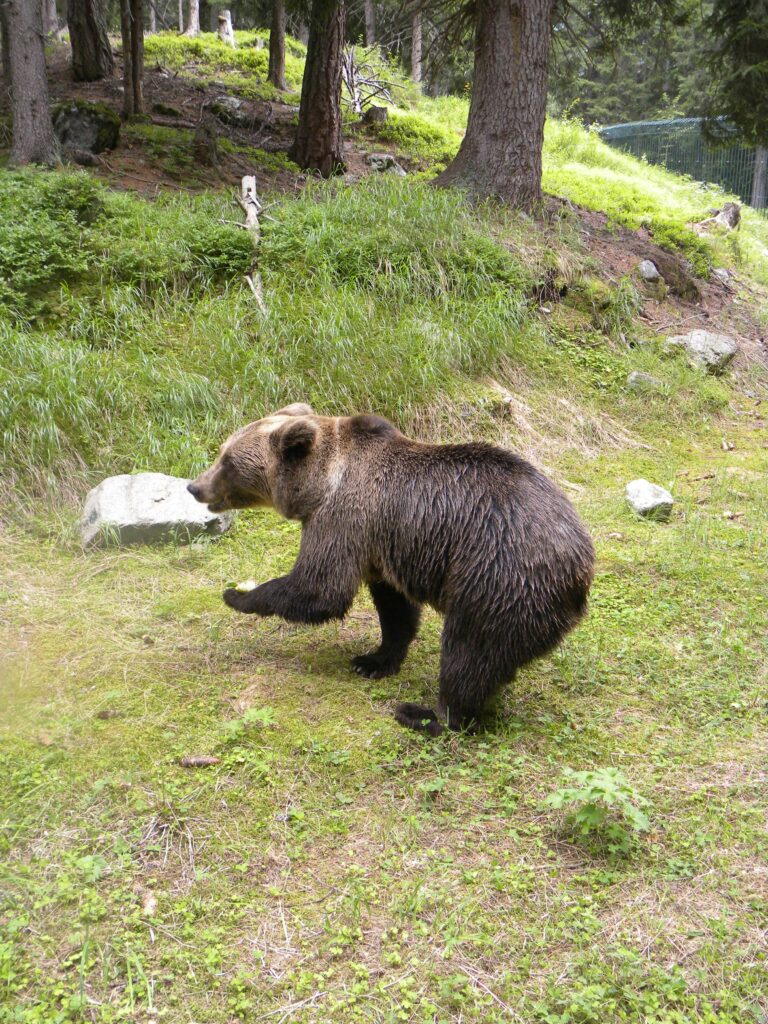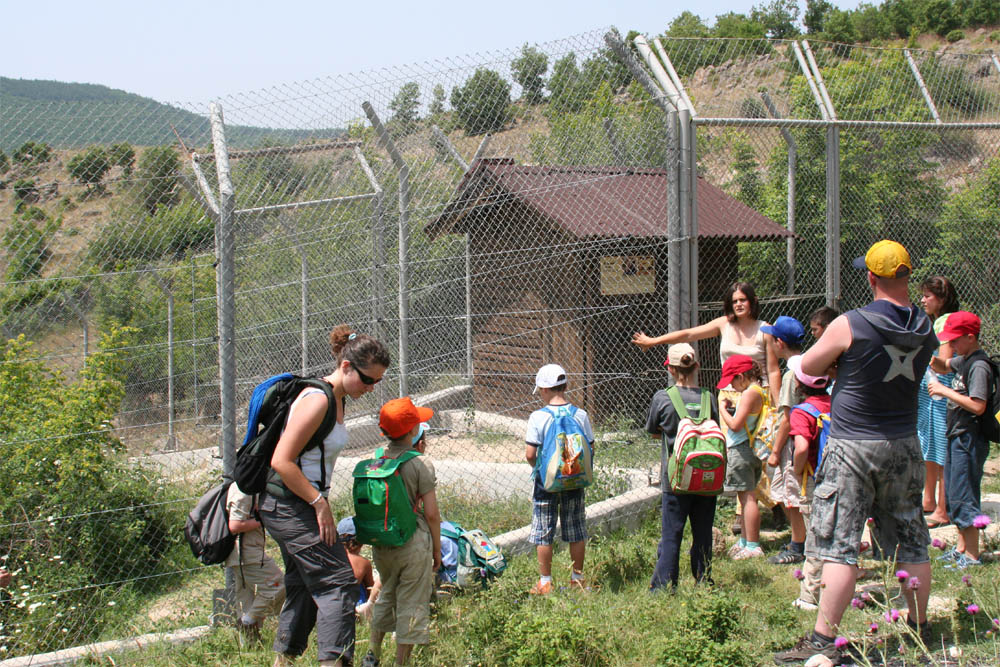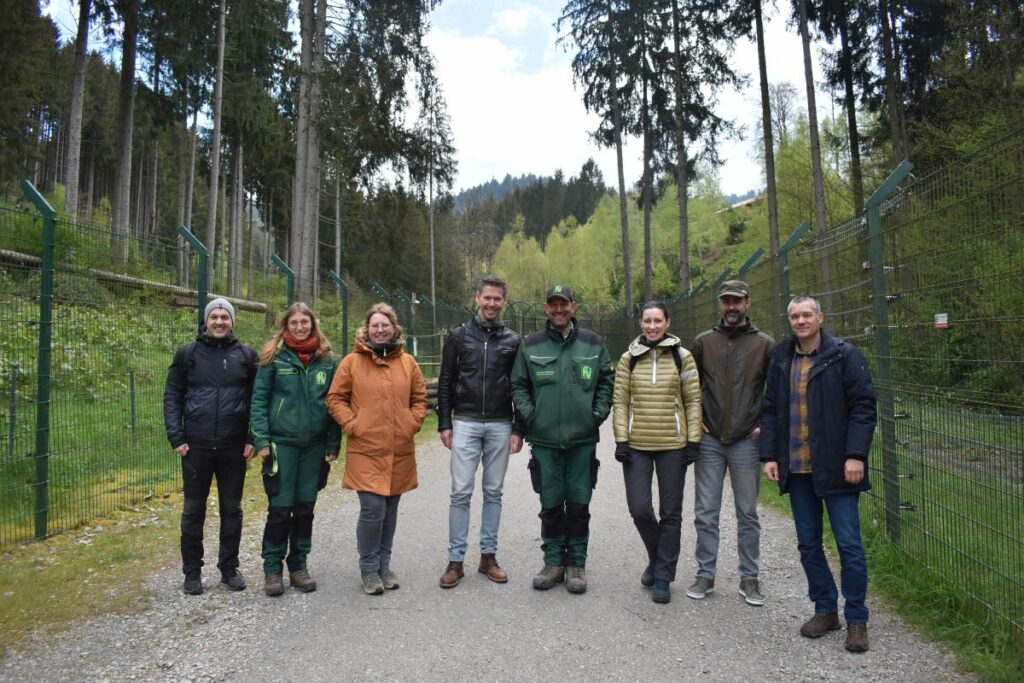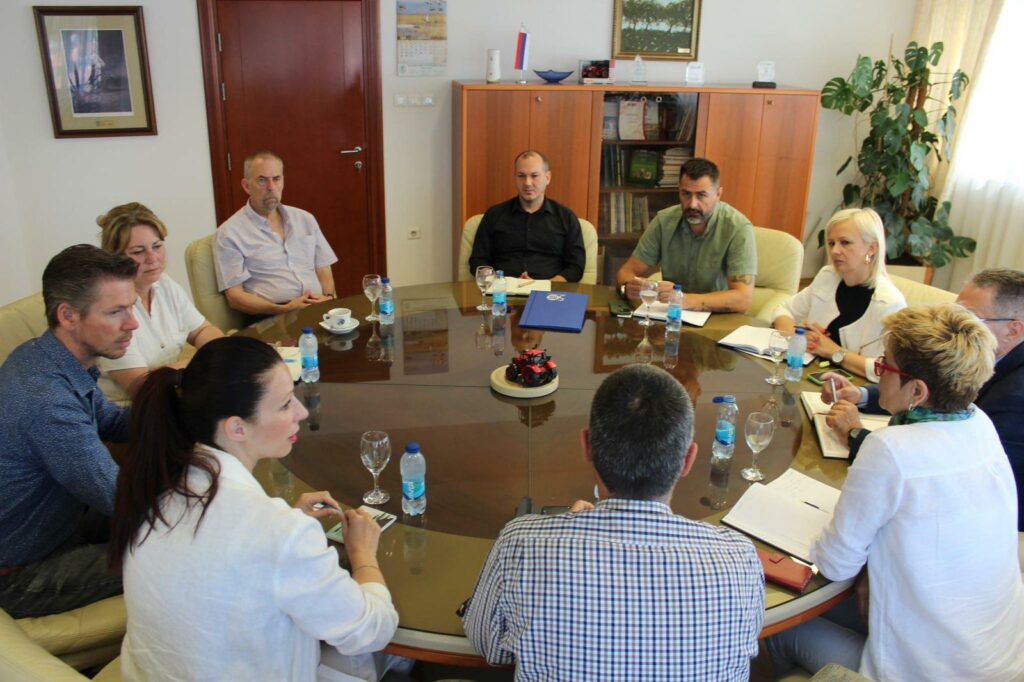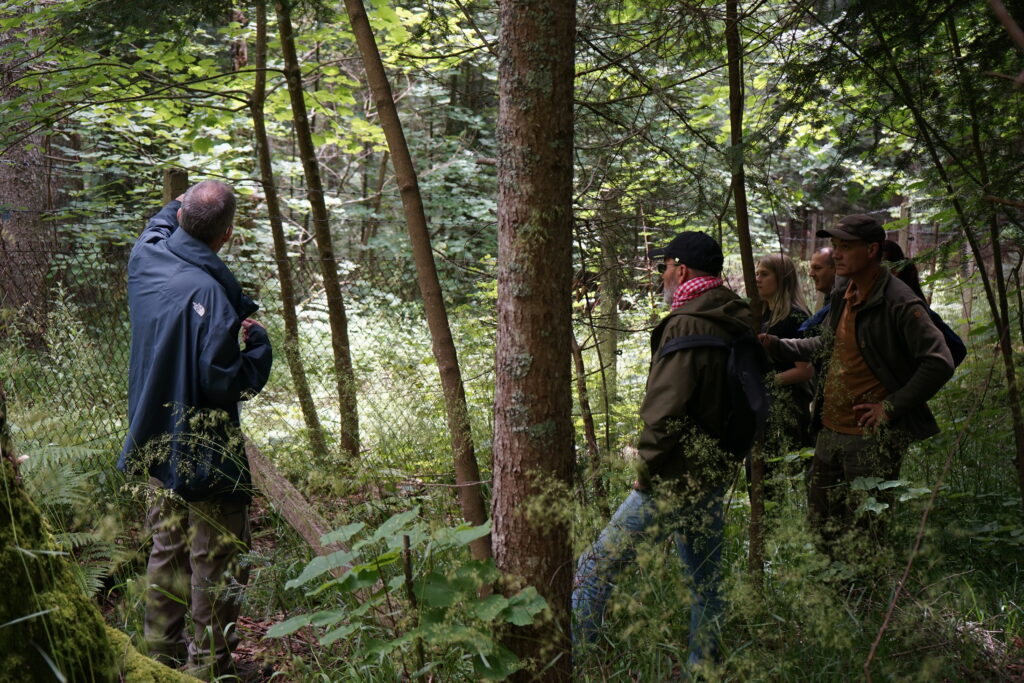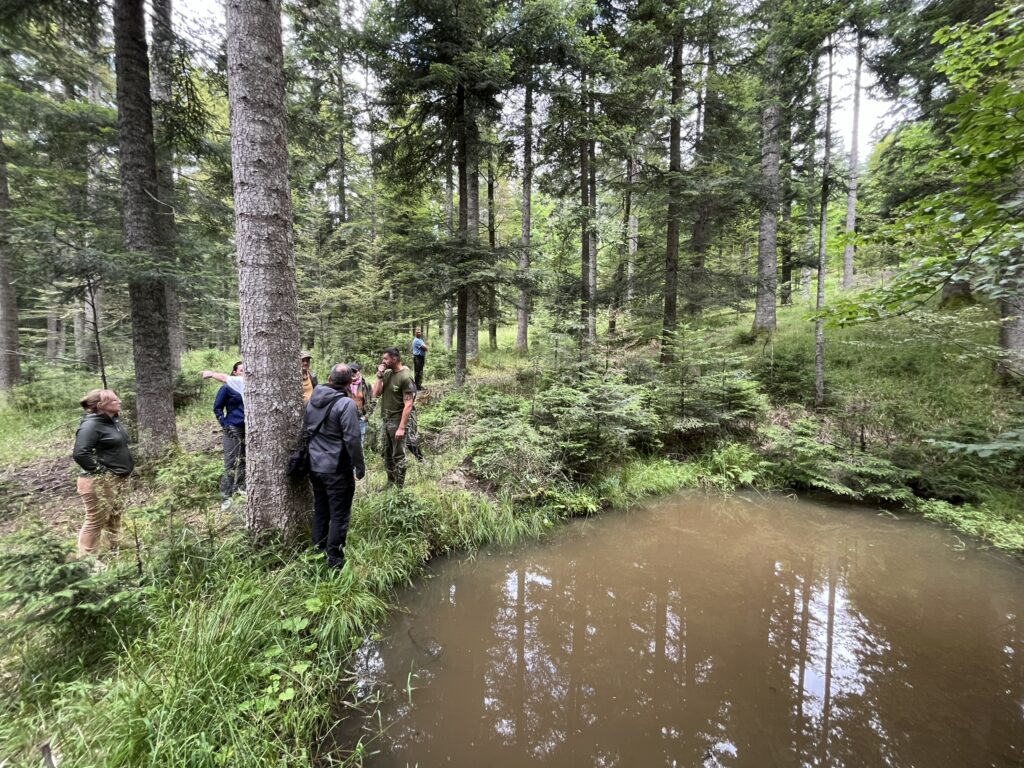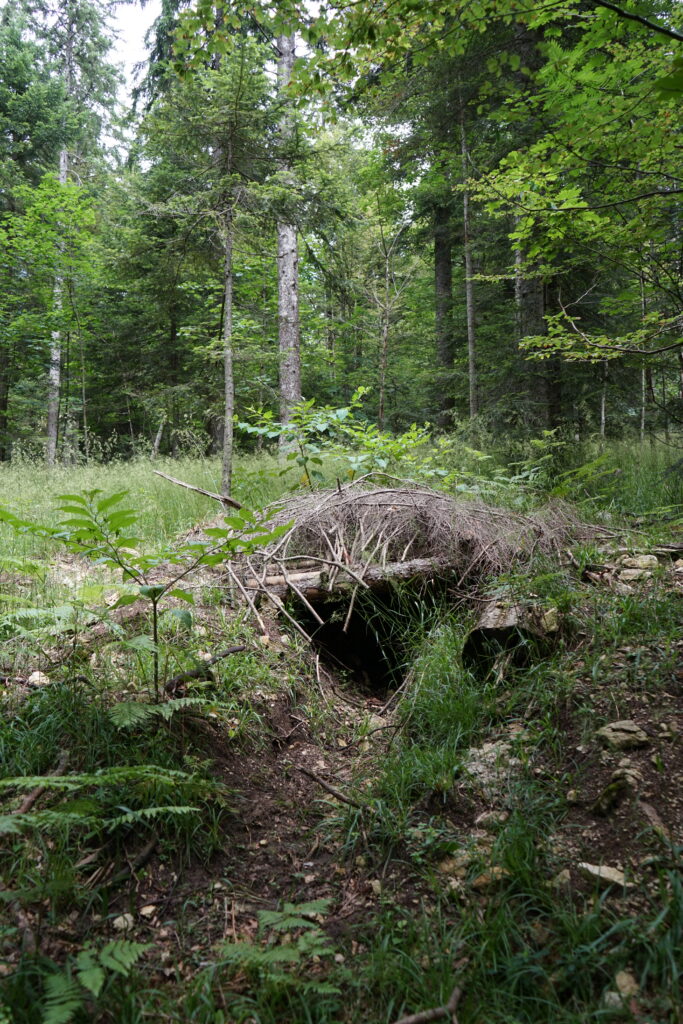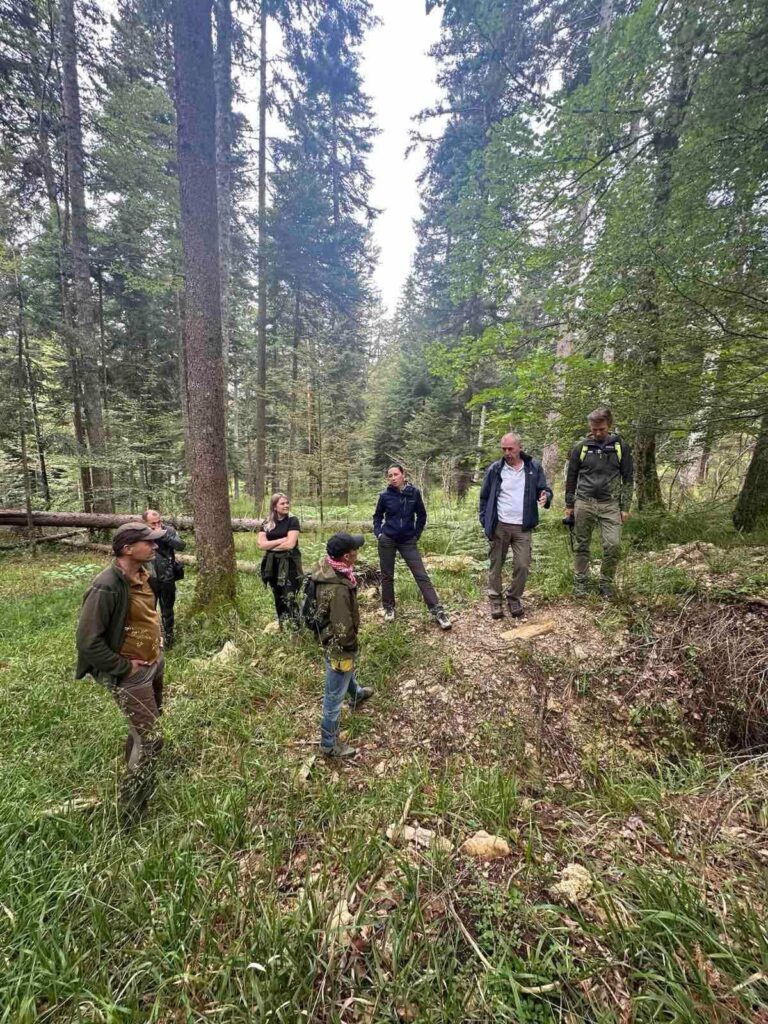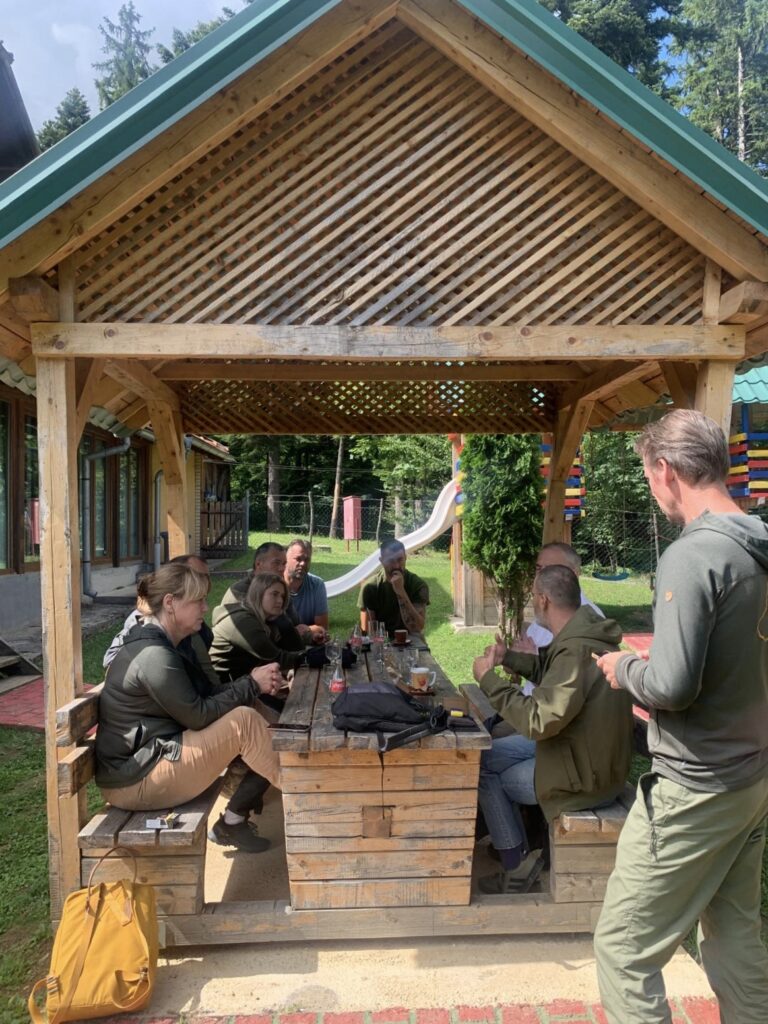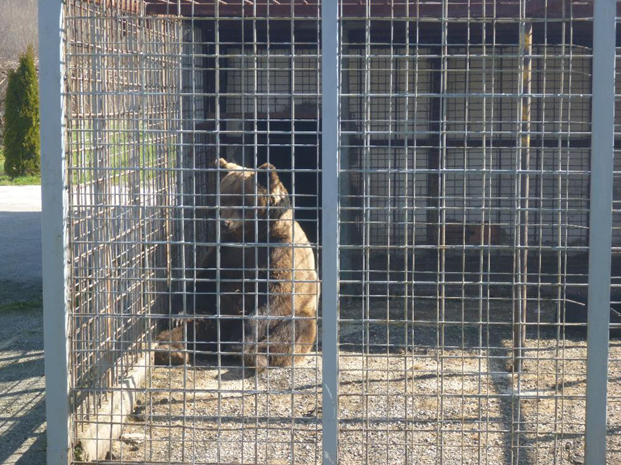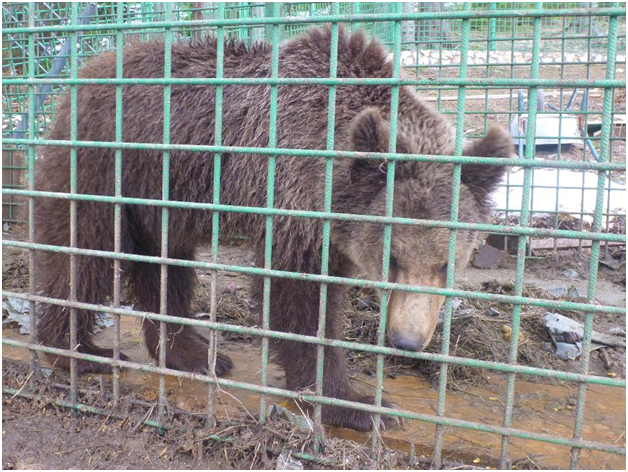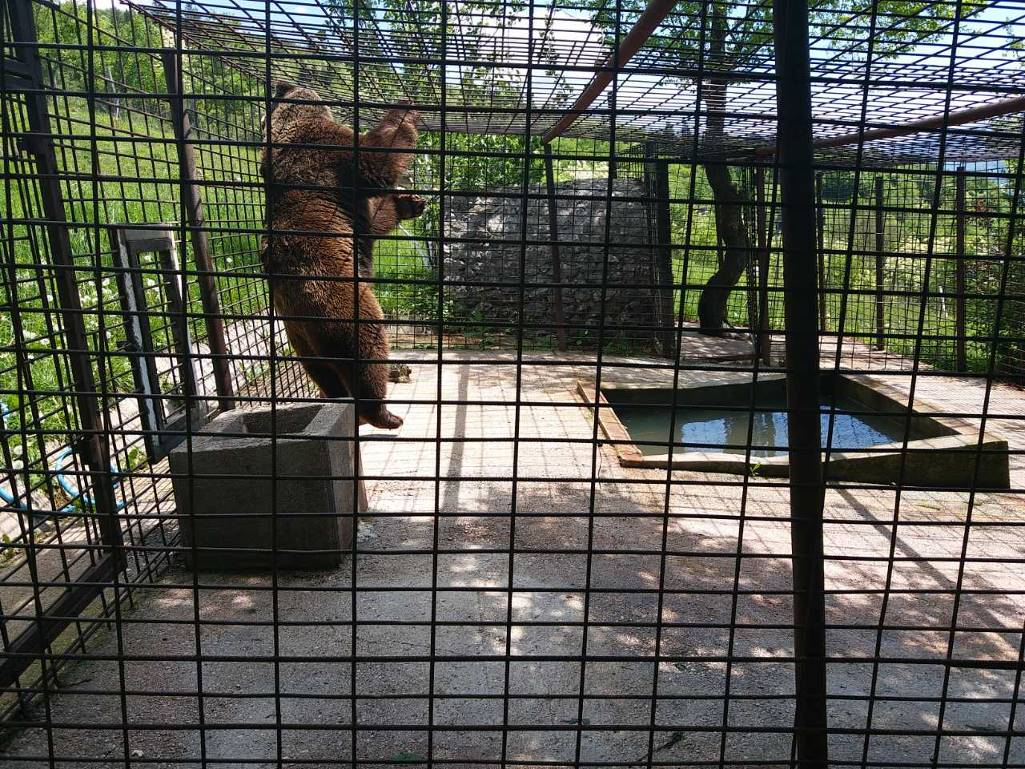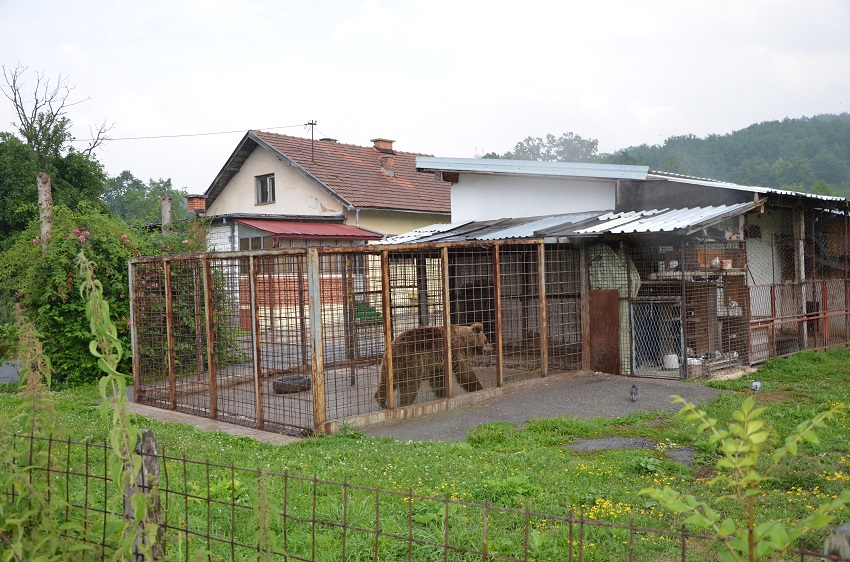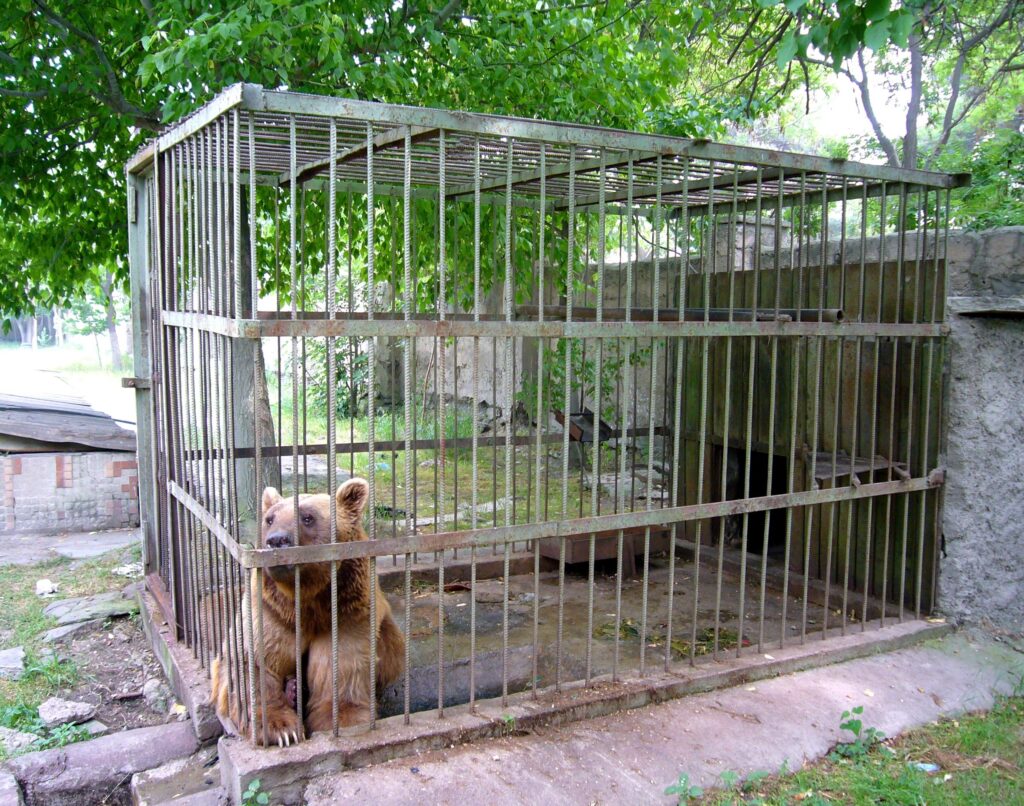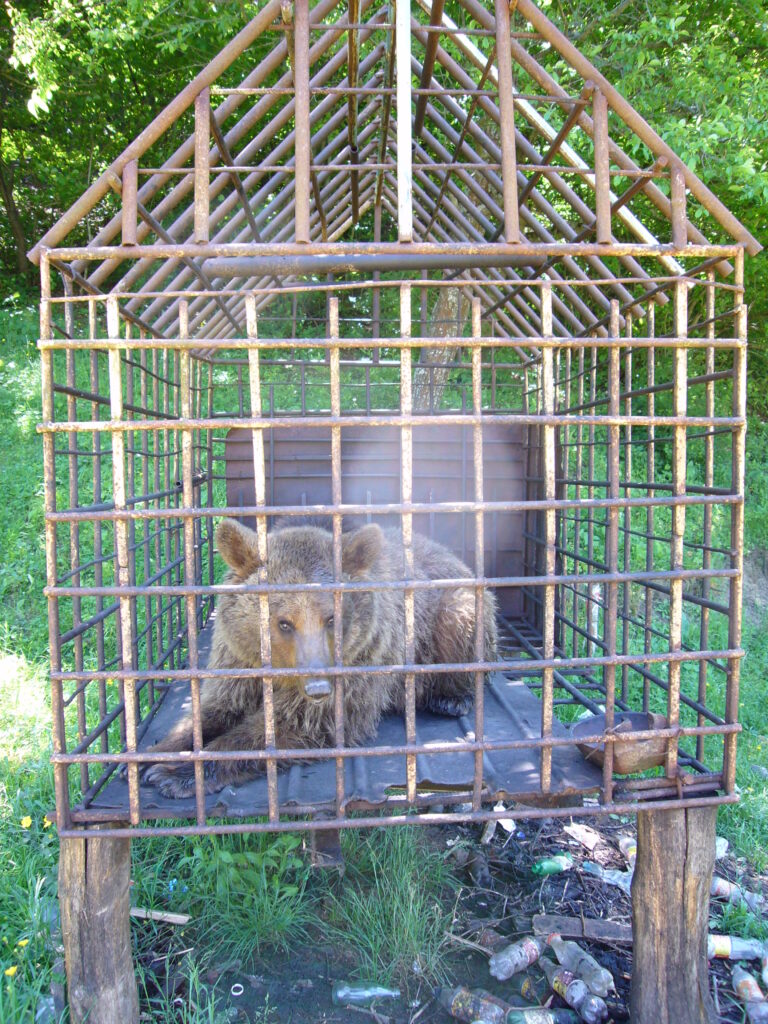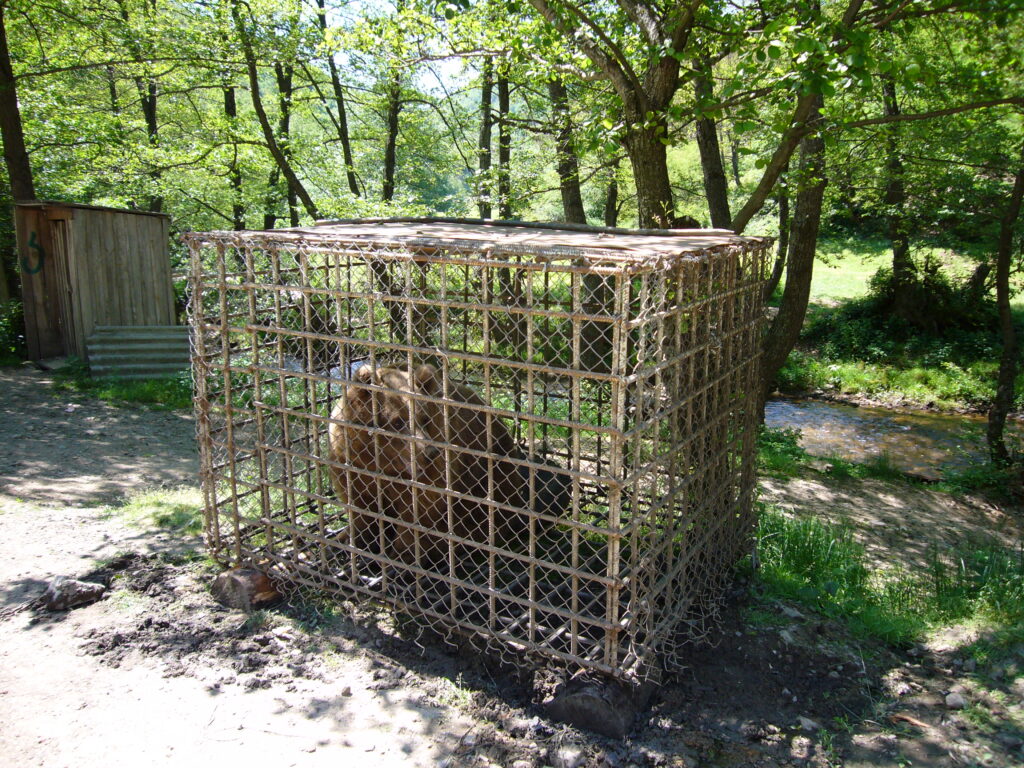Brief history
The famous Český Krumlov castle in the Czech Republic is a well-known UNESCO World Heritage site. One of its characterizing features can be noticed from the outside, as it is decorated with ostentatious coats of arms of the lords of the Rosenberg family, with the sign of the five-petalled rose against a silver background and bears as shield bearers. According to Rosenberg family legend, the Rosenbergs were related to the noble Italian family of Orsini. “Orsa” means bear in Italian, and it is this animal motif that the last rulers of Rosenberg in particular used to demonstrate their relationship with the house of Orsini. They used the motif in their coat of arms, which depicts two bears as shield bearers. This alleged relationship would endorse the antiquity of the House of Rosenberg and lead it to its roots in ancient Rome. The depiction of these bears gave birth to an ancient-old tradition of keeping bears at the castle.
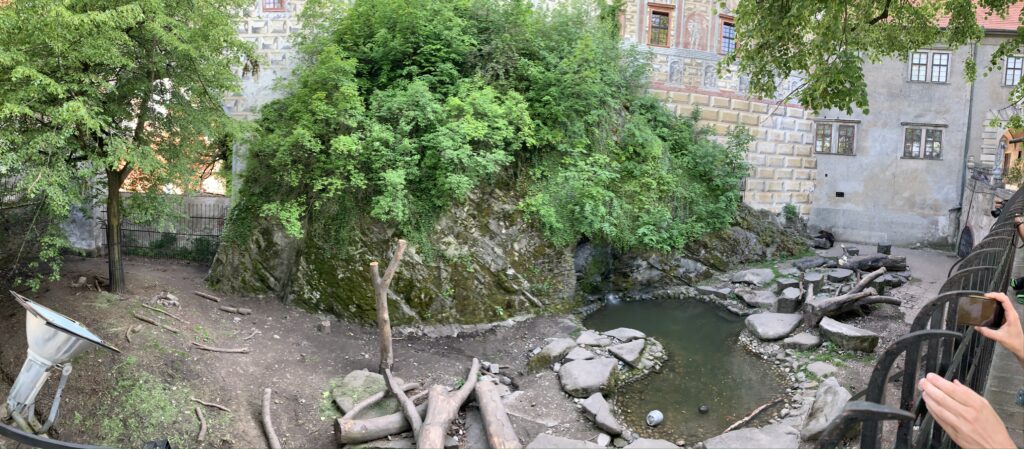
Bears from Český Krumlov
It is not known when the first bears were kept as so-called castle bears in former Bohemia (a former part of the Czech Republic). But it is known that the first bears were kept at Český Krumlov castle from the second half of the 16th century, dating back to the time of Wilhelm von Rosenberg. It is not known where the bears were housed in or near the castle at the time. It could not have been in the current moat, as it was not built until the beginning of the Thirty Years’ War, around 1620. The first records of keeping bears in the moat date from 1707, there were four of them. Bears were kept in the moat continuously from the 1730s to the 1790s, although no animal could be found in the first half of the 19th century. It was not until 1857 that Karl zu Schwarzenberg of the Orlík family obtained some bears from Transylvania (Romania) for Johann Adolf II zu Schwarzenberg. Besides the fact that bears were born in Český Krumlov castle, the number of animals was maintained by purchasing them from zoos, as well as by donations from famous aristocrats. From 1887 the moat remained uninhabited for 20 years. In 1907, Prince Sigmund Schonburg-Waldenburg zu Schwarzenberg presented two bears named Ruschi and Ajax to Český Krumlov, brought from the grounds of Kynžvart castle. The first bear lived until 1930, the other until 1935. After that, the moat has always been inhabited by bears, until present times.
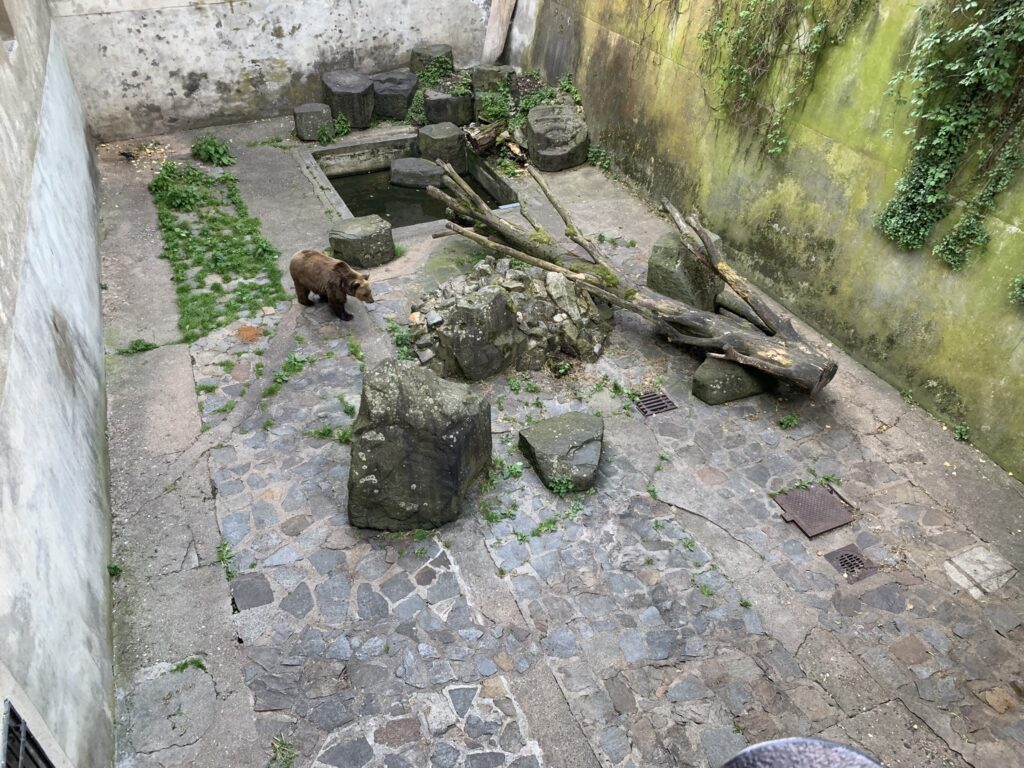
Bear Alert notifications
In addition to bears in the moat of Český Krumlov, bears were and are also kept in moats at other castles. Over the years, Bears in Mind has received many reports via Bear Alert, usually by tourists visiting the castles. Around 2010, an attempt was made to draw attention to this phenomenon in the Czech Republic, but no solution was found. At present (2025) there are three brown bears in Český Krumlov and two brown bears at Točník castle. The so-called medvědárium in Zámecký park in Kladno has two brown bears. In addition, there is a brown bear in the medvědárium in the city park of Beroun.
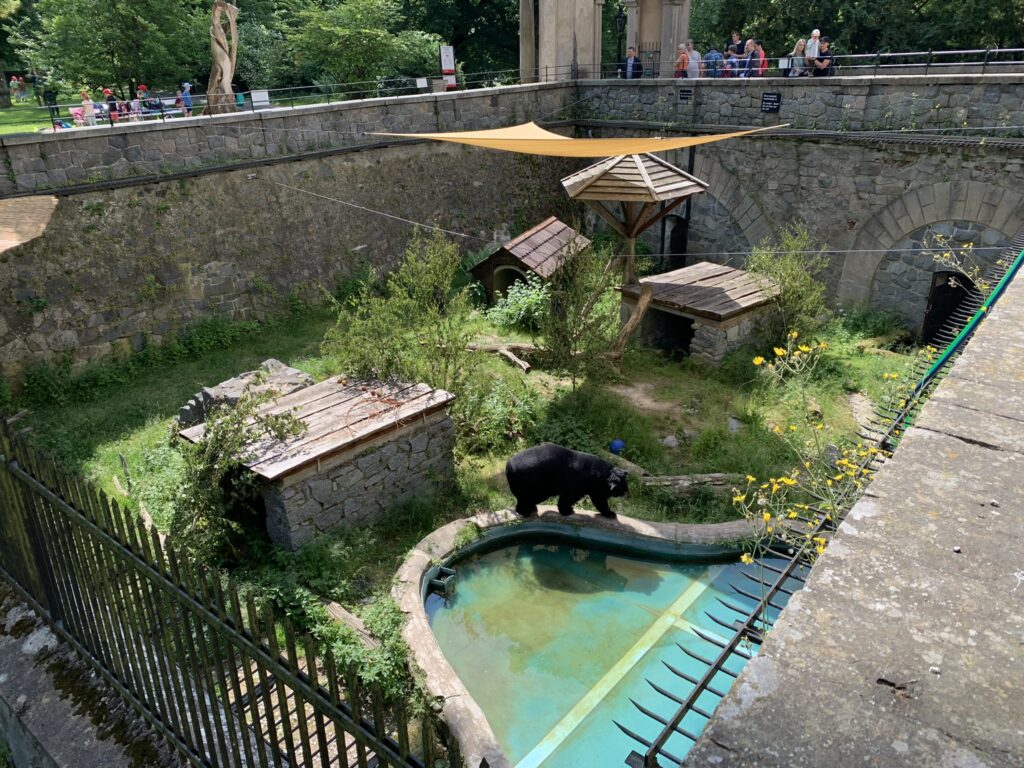
Since 2021, we have actively picked up again and started investigating the situation with the local Czech partner and our German colleagues from Foundation for Bears (Stiftung für Bären), how to gradually end this phenomenon and work towards better welfare for these bears.
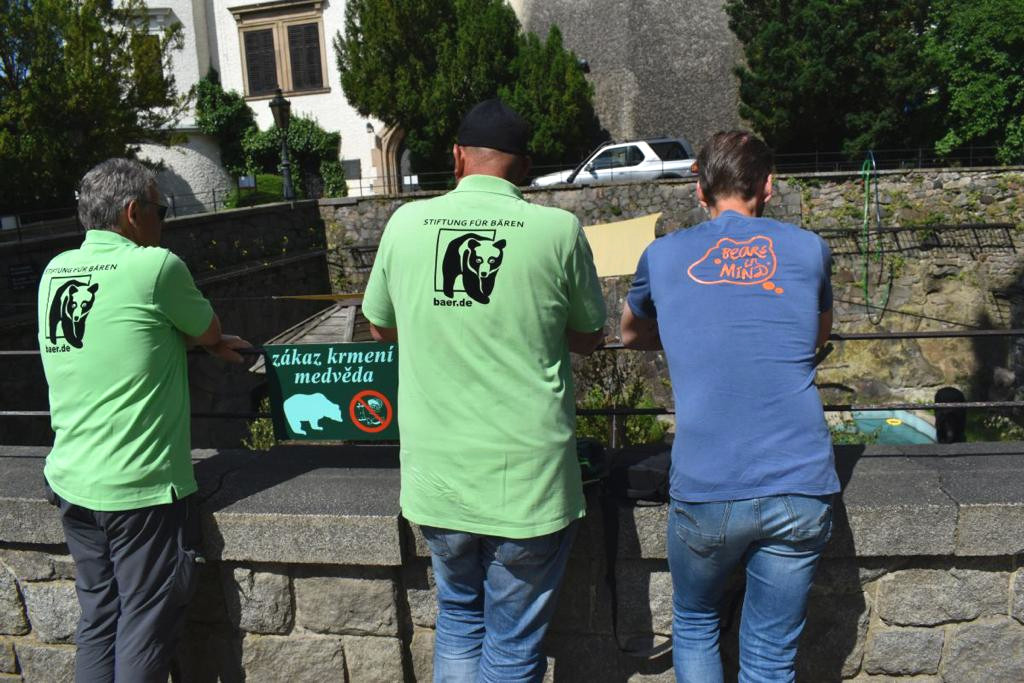
We have had conversations with the local partner, with the castle managers and with the responsible person within the National Heritage Institute (NPU). This institute falls directly under the Ministry of Culture and is responsible for the management of Czech monuments and castles (and therefore also the bears!). We had a successful first meeting with Mr. Pešek, where we presented our organizations, presented and handed-over the petition, shared our views and proposed solutions (e.g. relocation of all bears to proper sanctuaries in Germany and The Netherlands). Local tradition is an important motivation in this, why there are still bears kept (legally) in this way, unlike the rest of Europe.
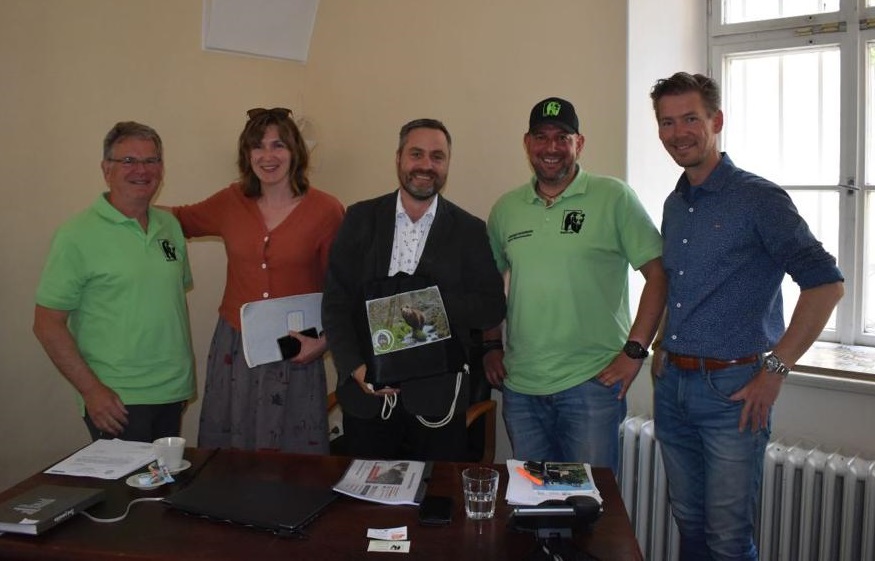
In collaboration with the owners, the responsible institutions and authorities, we look into improving the lives of the bears. Important in this regard is, among other things, conducting sound research such as visitor interviews at the various castles, to gain insight into the opinion and motivation of visitors regarding the captive bears. Both local Czech visitors and international tourists. A thorough reseach project by a MSc student from the Czech University of Life Sciences (CZU) was done in the summer of 2024, funded by Bears in Mind.
UPDATES
On May 14th 2024, an important meeting between the coalition took place. The goal was to get consensus on the plans above, officially sign a Memorandum of Understanding.
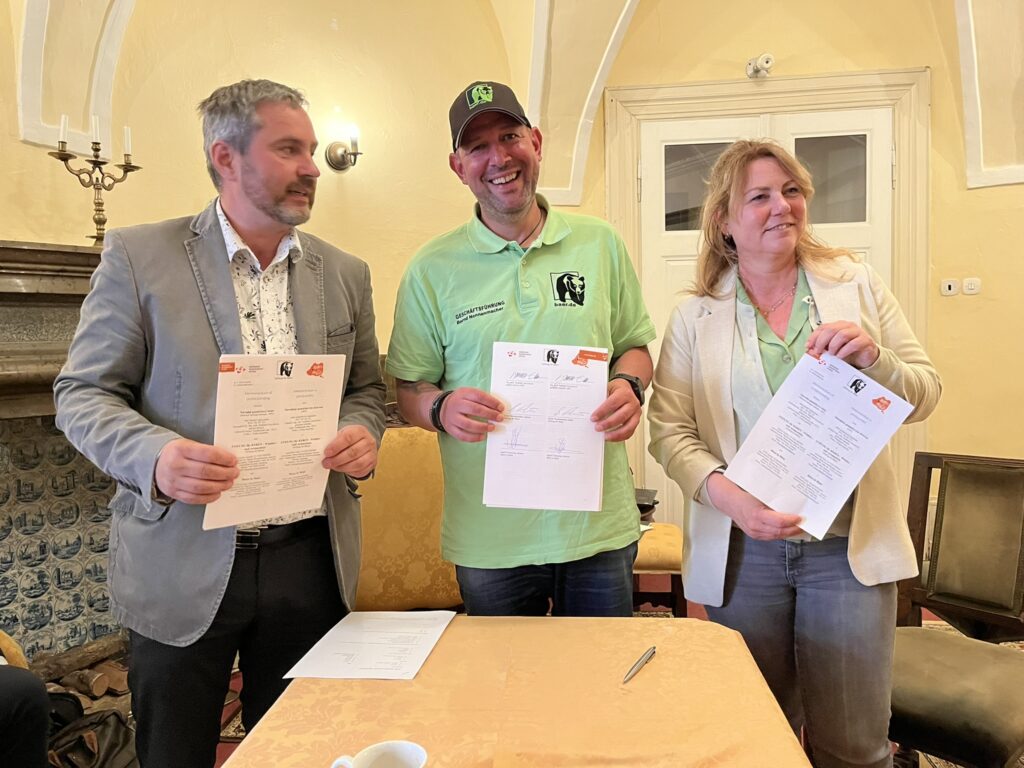
Thanks to our collaboration with the NPU and our joint effort, Asiatic black bear Jirka (which used to be kept at the Konopiště castle moat in an area of 266 m² – minimum legal requirement is 300 m²), was moved to Ostrava Zoo (CZ) on December 18, 2024. Ostrava Zoo has a forested enclosure for Asiatic black bears of approximately 1 ha, which contains, next to a natural forest, also a lake and many possibilities to hide. Jirka will be sharing this enclosure with an older male Asiatic black bear and a group of northern plains gray langurs (a type of monkey which lives in the bears’ natural environment). Jirka has already met the monkeys during his 30-day quarantine. Now Jirka’s quarantine is over and below is a video of Jirka’s first moments in the main large outside enclosure, where trees got his special attention. We believe that the professionality of Ostrava Zoo, together with the size and possibilities of Jirka’s enclosure, will benefit his mental and physical health significantly.
On January 23rd 2025, bear Ludvik who lived at Náchod castle, was euthanized due to a severe illness. He was 33 years old. His female companion Dáša died two years ago. There are no more bears at Náchod.
More news will follow soon!


